We’re sorry, this site is currently experiencing technical difficulties. Please try again in a few moments. Exception: request blocked

Your Best Guide to China
Visiting China soon? Start here

- Best China VPN
- Chinese culture
- Banned apps
- Apps in China
- Love in China
- Teach in China
- Provinces and regions
- Special offers
- 6 steps to get started
- Best places to visit in China
- What to bring to China
- What not to bring to China
- China packing list
- Tips for your first trip
- Tips for solo travel

Top 16 do’s and don’ts of texting Chinese girls
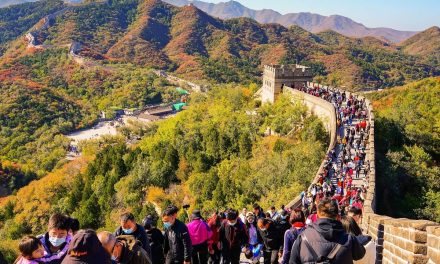
Best time to visit the Great Wall of China (2024)
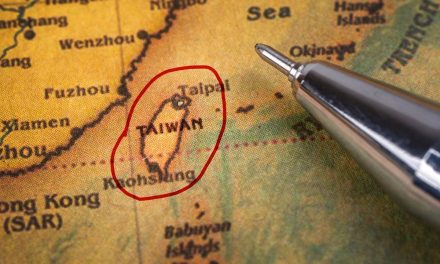
What are the main differences between China and Taiwan?
- Travel agencies
- Learn Chinese in China
- Learn Chinese online
- Study programs
- Internships
- Recruitment agencies
- Teacher recruitment agencies
- TEFL courses
- Volunteer programs
- Dating sites
- Travel insurance
Select Page
What every American traveling to China in 2024 needs to know
Posted by Mike Cairnduff | Updated December 14, 2023 | China blog , Travel
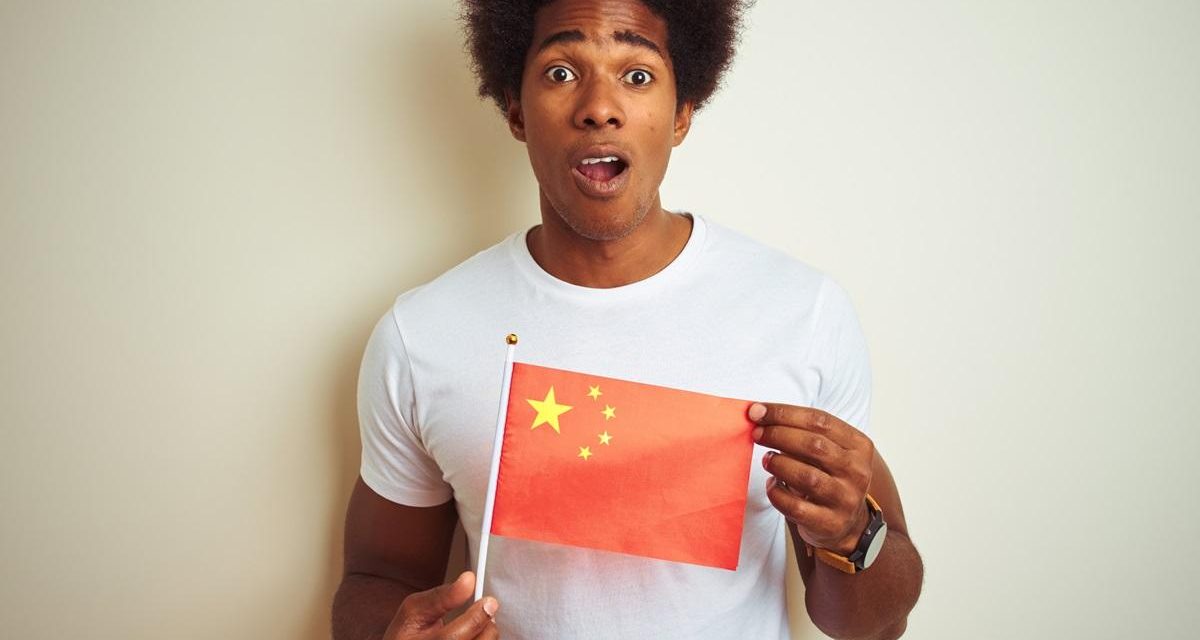
OK, so you’re American and you’re traveling to China.
Firstly, congratulations! That is so exciting.
Having spent loads of time in China myself, I’m pleased to be able to share my best tips with you so that you can feel more confident and organized.
These are all the main things you should consider before jumping on the plane.
Not from the US? You may still find this article helpful but I’d suggest referring to my mega China travel tips page for more details.
1. Don’t tip
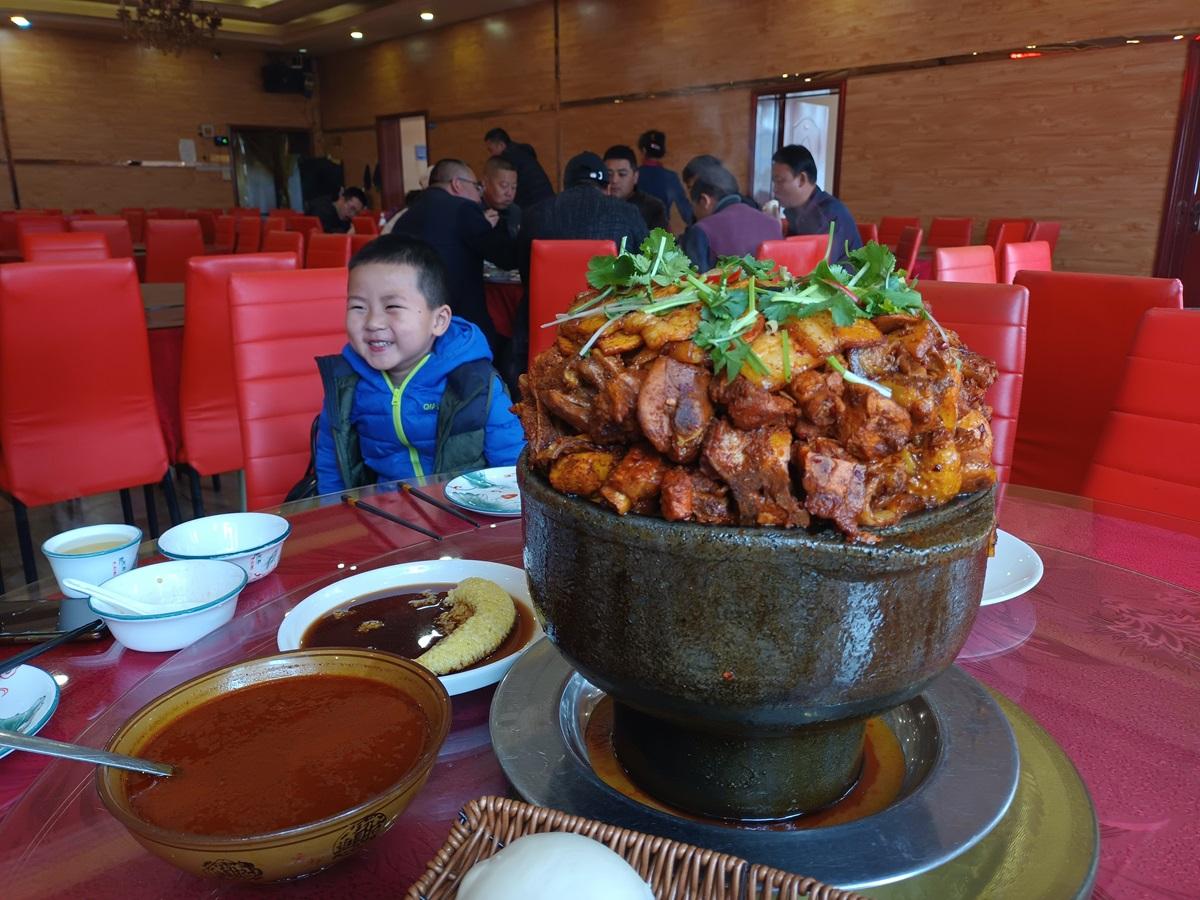
Great meal in China? Don’t tip. Image supplied by Mike Cairnduff.
My first tip – don’t tip.
The Chinese don’t tip, and neither should you. It might feel strange at first, but you’ll get used to it.
There are some exceptions to the rule, for instance if you receive amazing service at a luxury hotel, but generally you can keep your purse closed for your entire trip.
If you want to hear my personal stories about tipping in China, or you want more information about the exceptions, visit this page on China tipping .
2. Shop around for flights
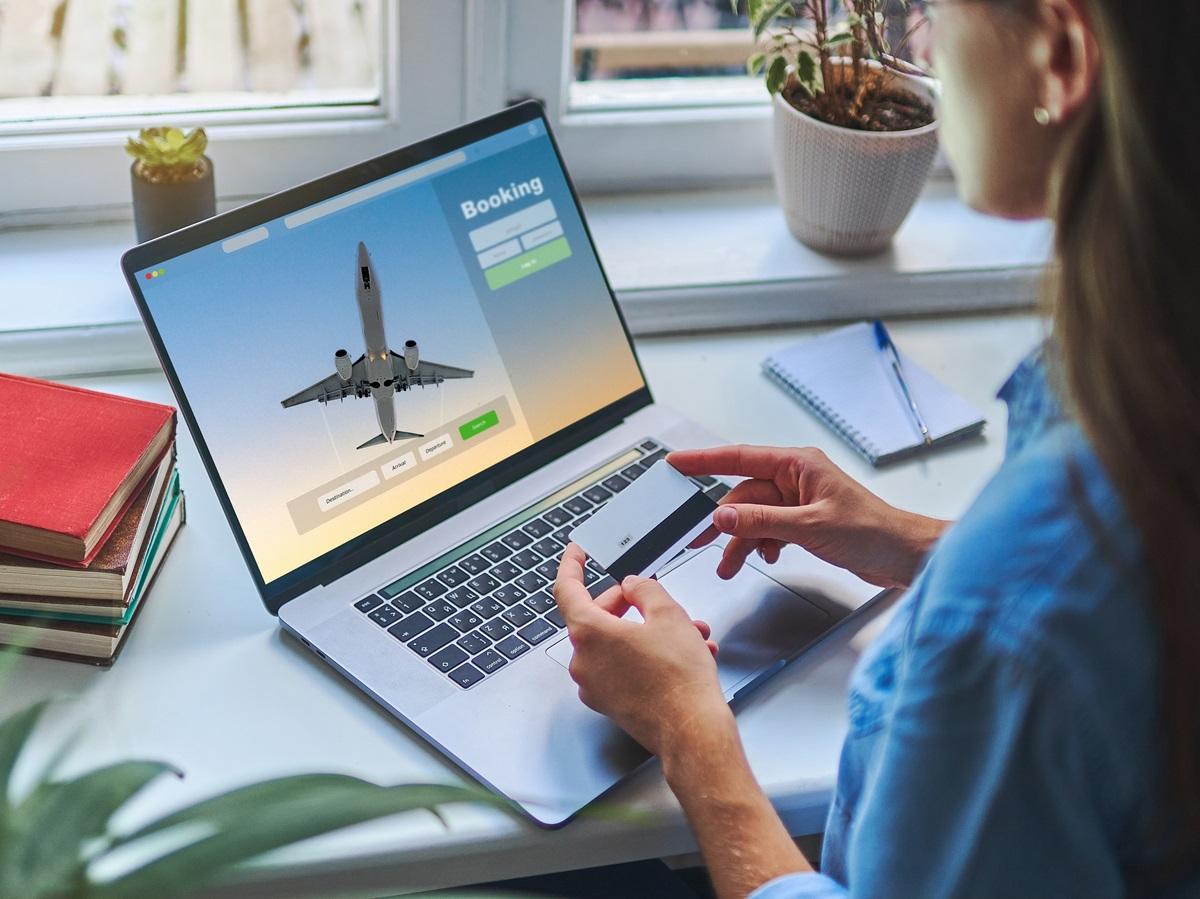
Airfares have been higher than usual so try to get a good deal. Image by goffkein.pro on Shutterstock.
This might sound like common sense.
But with China-US relations at a sobering low, the number of direct flights between the two countries has not rebounded to pre-pandemic levels.
The result? Higher than normal airfares.

This is why it’s even more important to shop around for a good deal. I recommend bundled flight and hotel deals through Trip .
(In case you don’t know, Trip is one of the best travel companies for China because it started there and has a huge offering of hotels, flights, tours, and train tickets.)
3. Plan your flight route
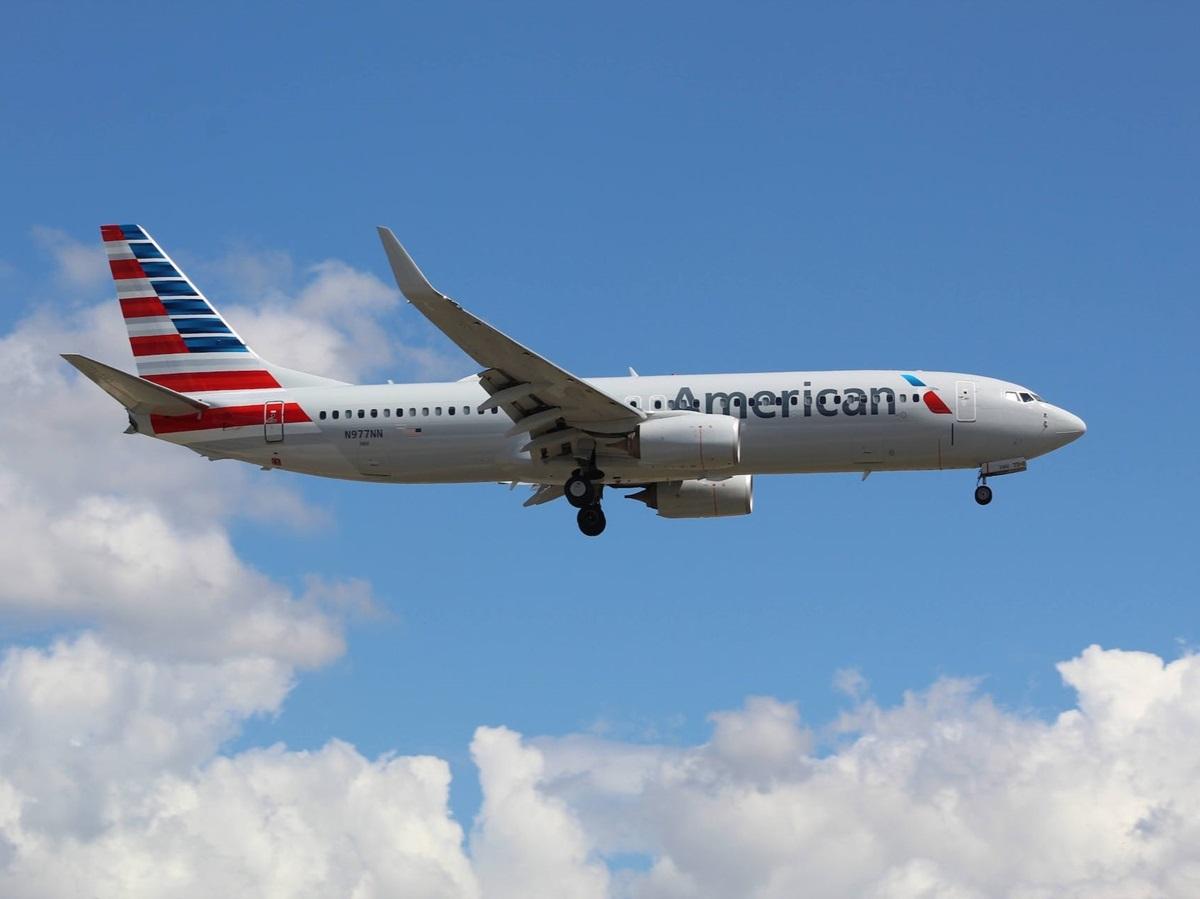
Flights from the US to China vary in terms of the route, flight time and cost. Image by Max Lewandowski on Pexels.
Speaking of flights, will you be flying out of the west coast or east coast?
And which Chinese city will you be flying into?
China is a huge country like the United States, so this will dictate not only how long your flight is , but also the options you have for a possible stopover (which may make the flight cheaper).
If you’re heading to southern China and you’re on a budget, you might find it’s more economical to fly to Bangkok, Thailand and transfer there.
There are lots of options, so it pays to do your research.
4. Consider U.S. government travel advice

Make sure you’re aware of the travel advice. Image by Yamil Najul on Shutterstock.
Before you buy your flights, it’s worth knowing the U.S. government’s official stance on visiting China.
Of the four travel advisory levels, the People’s Republic of China is regarded as Level 3: “reconsider travel”.
The U.S. government says you should “reconsider travel to mainland China due to the arbitrary enforcement of local laws, including in relation to exit bans, and the risk of wrongful detentions.”
I believe the United States is the only country in the world with such advice at the moment (correct me if I’m wrong, in the comments below).
Other countries, such as Canada and Australia, have a lower level of advice, which is to “exercise a high degree of caution”.
It’s such a shame that the USA and China aren’t getting along at the moment.
5. Get a VPN before you leave
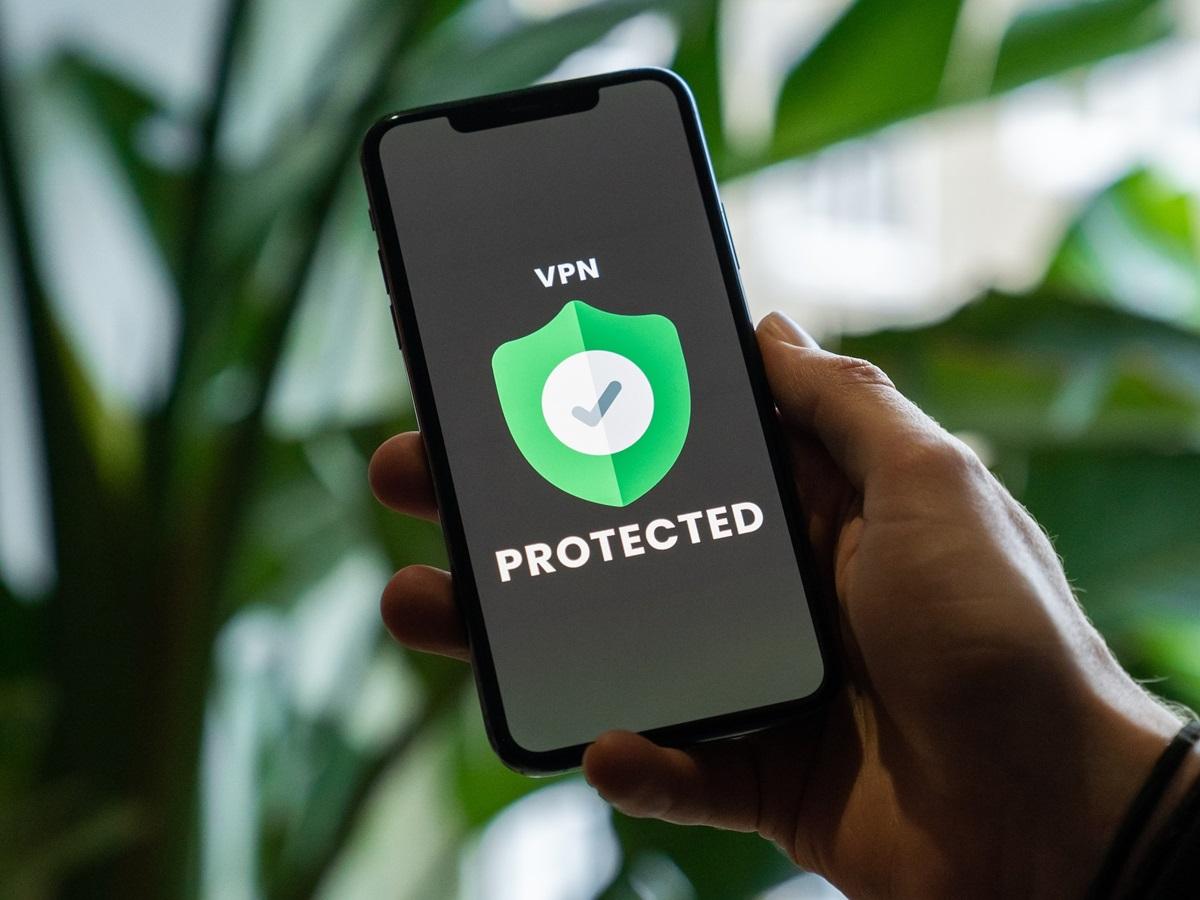
You need a VPN if you want to use hotel Wi-Fi. Image by Privecstasy on Unsplash.
If you want to stay connected with all your loved ones in the United States, and keep using all the sites and apps you’re used to, you’ll need a VPN if you want to use Wi-Fi in China.
Censorship is extensive and the Chinese authorities are making it harder and harder for the VPN companies.
Of course, you can survive in China as an American without a VPN but life is much, much harder. Almost every major American social media and news site is banned, not to mention sites that make our lives easier like Google.
Refer to my page on the best VPN for China which only highlights the ones that work in China.
It’s worth pointing out that the Chinese government isn’t trying to make it hard for foreigners regarding internet access. The restrictions are in place to control what the locals see.
6. Allow enough time for your Chinese visa
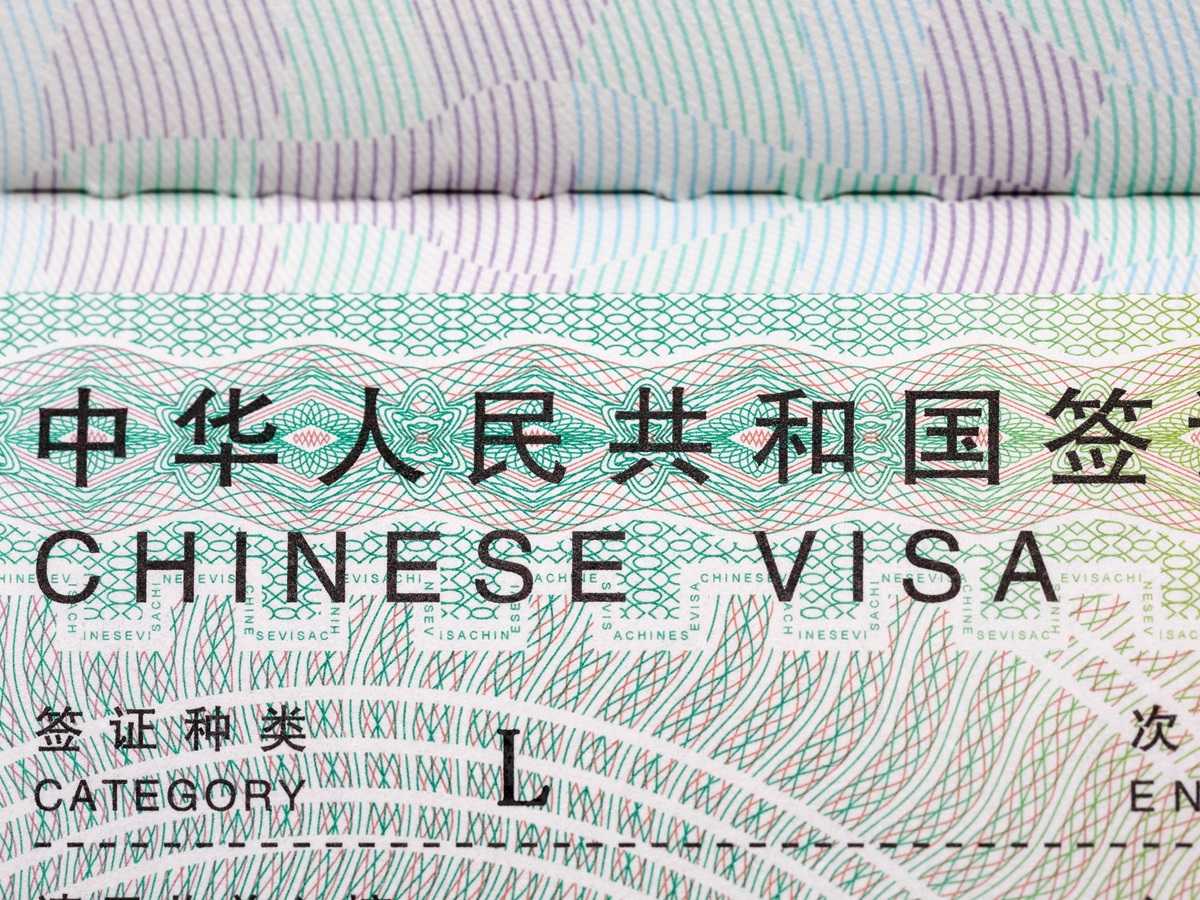
Allow time to get your Chinese visa. Image by Toa55 on Shutterstock.
One of the downsides of being a US citizen traveling to China is the visa process .
Unless you live near one of the Chinese consulates (and you do a walk-in), you’ll need to pay an agent to handle this for you.
You cannot do visa applications by mail. It’s a pain in the butt, and makes your trip a little more complex and costly.
For walk-ins, consulates are located in:
- Washington DC (the embassy)
- Los Angeles
- San Francisco
There used to be one in Texas but it’s closed at the moment.
You can refer to the Chinese embassy’s US page for more info.
When using an agent, allow about a week for visa processing, provided you’ve submitted everything perfectly the first go.
If you need a visa agent, I recommend using a trusted one such as iVisa:
Remember not to buy your airfare until your visa has been issued and you’ve got your travel documents back.
7. Brace yourself for the steps and stairs
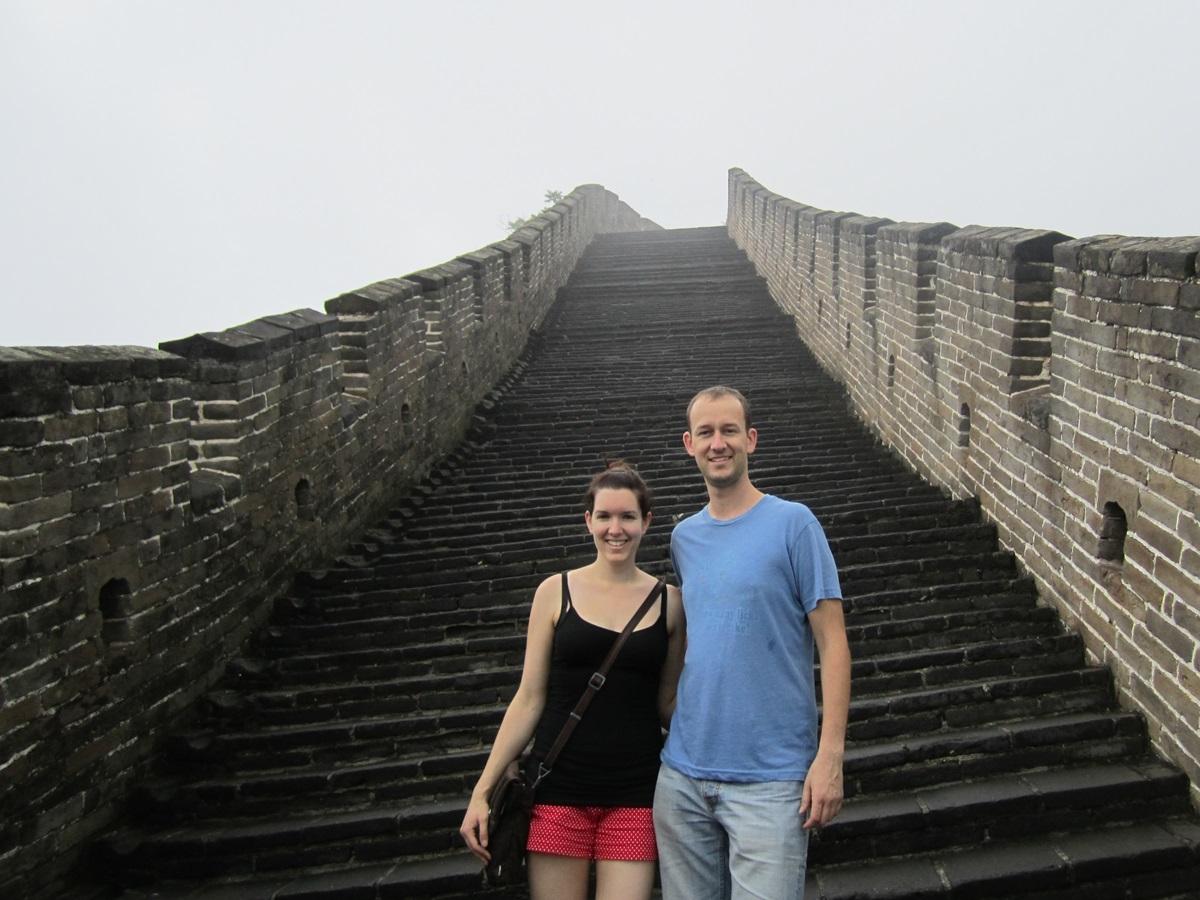
One tiny, tiny section of the Great Wall. Image supplied by Mike Cairnduff.
A lot of Chinese tourist attractions have loads of steps and stairs. And I’m talking thousands.
There are no elevators at the natural attractions, either. So, if you’re very unfit and you want to see some of China’s best attractions, you might need to rethink your trip.
From my experience traveling around China the past couple of decades, here are the main culprits with an insane amount of stairs and steps:
- The Great Wall of China (sorry!)
- Longji Rice Terraces near Guilin
- Any mountain (it probably goes without saying) such as Huashan Mountain
- Zhangjiajie, the area that inspired the backdrop in the movie Avatar
- Giant Buddha in Leshan
And there are many more!
Oh, and if you’re in a wheelchair, you’re going to have an extremely hard time in China even in the major cities.
Getting through a temple or the Forbidden City would be impossible (as Chinese traditions involve stepping over the bottom of a doorway), let alone being able to get up and down sidewalks.
8. Ditch the credit cards

Cash or card? You won’t hear that expression in China. Image by Rann Vijay on Pexels.
In recent years, China has become a lot more advanced than the US when it comes to consumer payments.
You’ll never see a Chinese person pull out a plastic card from their wallet. Everyone pays for stuff using a phone app – either WeChat Pay or Alipay.
The good news? You can too!
If you’re comfortable submitting your personal details (including passport details) to WeChat or Alipay, you’ll be able to pay for everyday stuff in China.
Your only other real option is cash, and that’s a pain because Chinese ATMs only spit out 100 yuan notes.
Small vendors often don’t have change for large denominations. It doesn’t sound like a big deal, but trust me, cash is getting really hard to use in China.
Sign up for Alipay or WeChat Pay, or both, before you head off. If you only sign up for one, my personal preference is Alipay as I find it a lot easier to navigate.
And when you sign up, make sure all your personal details match up, or your application will be rejected.
Customer service for both apps is appalling (it’s practically non-existent), so don’t bother contacting them if you have any issues.
You can check out my China travel apps page for more apps that will make your trip easier.
9. Expect a different hotel experience
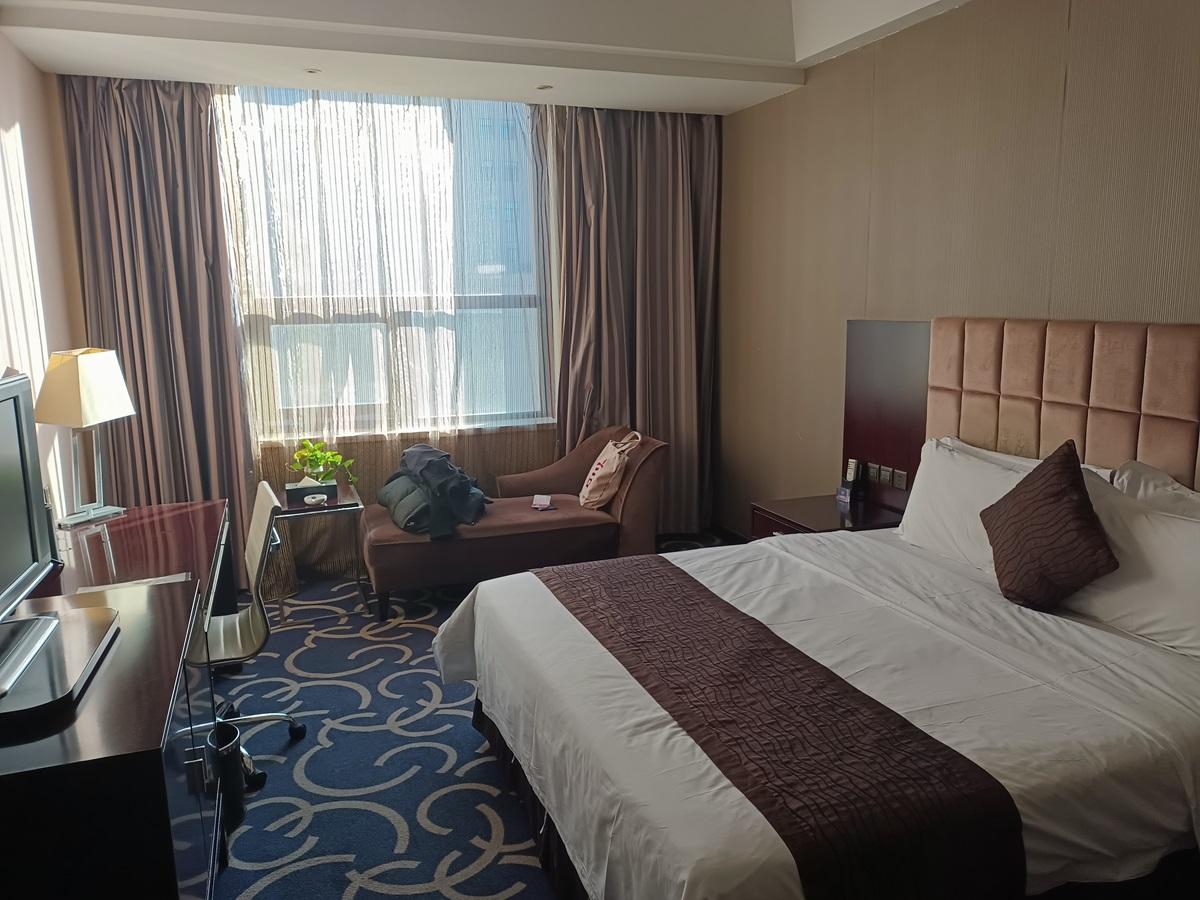
A typical Chinese hotel room in a big city. Image supplied by Mike Cairnduff.
Hotels in China are OK, but they’re certainly not great (unless you’re staying in luxury).
When it comes to dealing with foreigners, Chinese hotel staff are generally helpful but quite shy and reserved. They’re afraid of making mistakes when speaking English.
From my experience staying at countless hotels across China, here are the main things an American traveling to China needs to know:
- Bottled water is provided daily because the tap water is unsafe to drink
- Most hotel rooms don’t have a minibar (but amazing Chinese food won’t be far away)
- Front desk staff can barely crack a smile
- Western breakfast is usually terrible (no fresh dairy, no cereal, bad coffee etc), so choose the buffet option if there is one
- If the Wi-Fi password isn’t printed anywhere, it’s probably 12345678 or 88888888
- Other guests can be noisy so bring earplugs
- Many rooms and hallways smell like cigarette smoke
- Toilet tissue is low quality and they don’t provide enough for two people.
I’ve also found that many Chinese hotels don’t understand what privacy means.
Even if you hang the ‘do not disturb’ sign on your door, you may find that hotel staff have entered the room to clean and so on. This has happened to me countless times.
I hope all of this doesn’t sound too negative. I’m just trying to give an honest appraisal so you know what to expect.
(I’ve written a whole article called What are Chinese people like? if you want to dig deeper into the Chinese psyche.)
10. Good luck with food
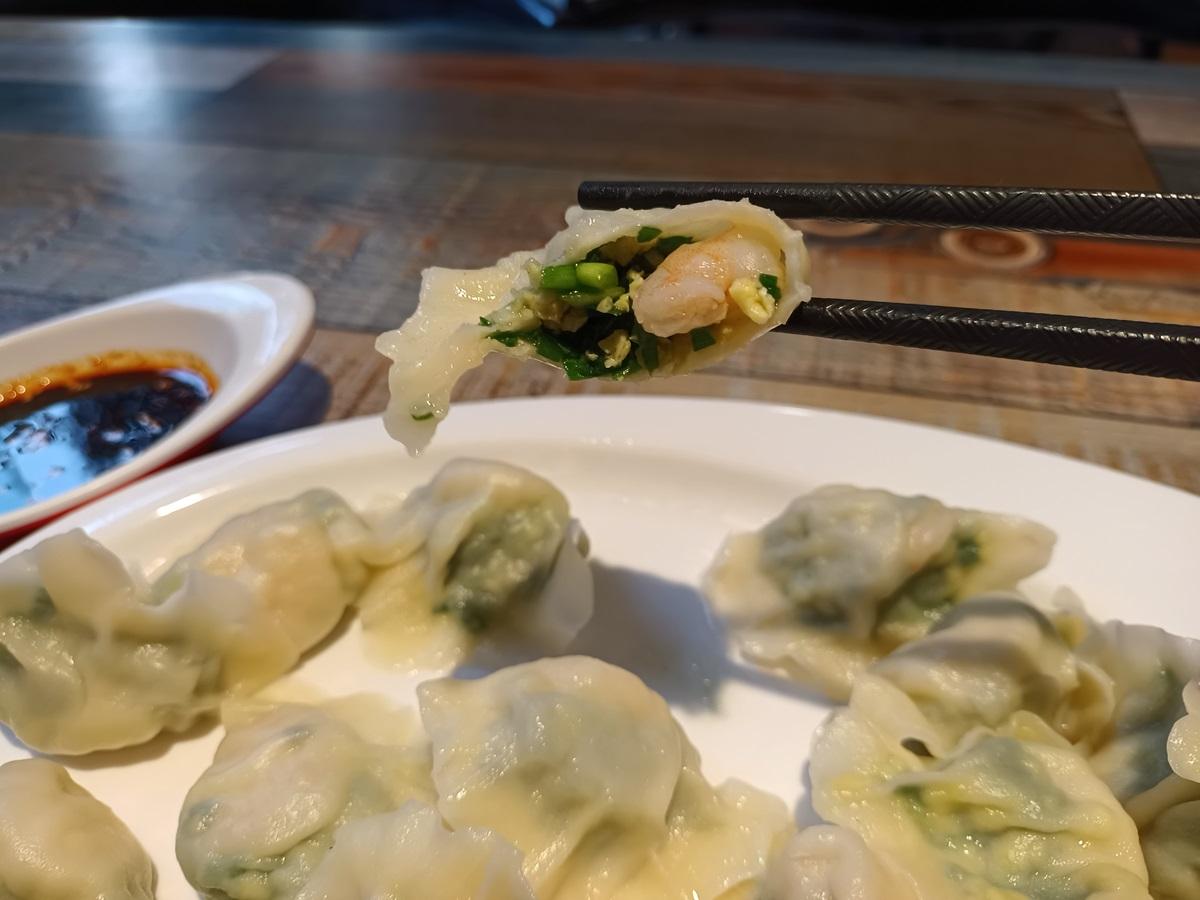
The so-called vegetarian dumplings which had prawn in them. Image supplied by Mike Cairnduff.
Chinese food is delicious and so much better than the ‘fake’ Chinese food in the United States.
General Tso’s chicken? Errr, the Chinese have never heard of it!
If you’re part of a tour, then your guide will probably take your group to restaurants to eat. But if you go it alone, here’s my advice:
- Choose a restaurant with photos on the wall or menu, so you can point
- Use a translator on your phone, such as Google Translate (remember to get your VPN )
- Chinese people don’t understand allergies (they don’t exist in China) so if you’re allergic to something know exactly what you’re ordering
- Food will come out at any random order, so don’t expect the rice first
- Locals love spicy food so if you don’t want a scorching mouth, say “Bù yào là” or show them the Chinese characters (不要辣) on your phone.
This list is by no means exhaustive but hopefully it helps you a little!
And remember to get China travel insurance in case you get really sick from food or something else. Medical care isn’t cheap in China.
11. BYO toilet paper
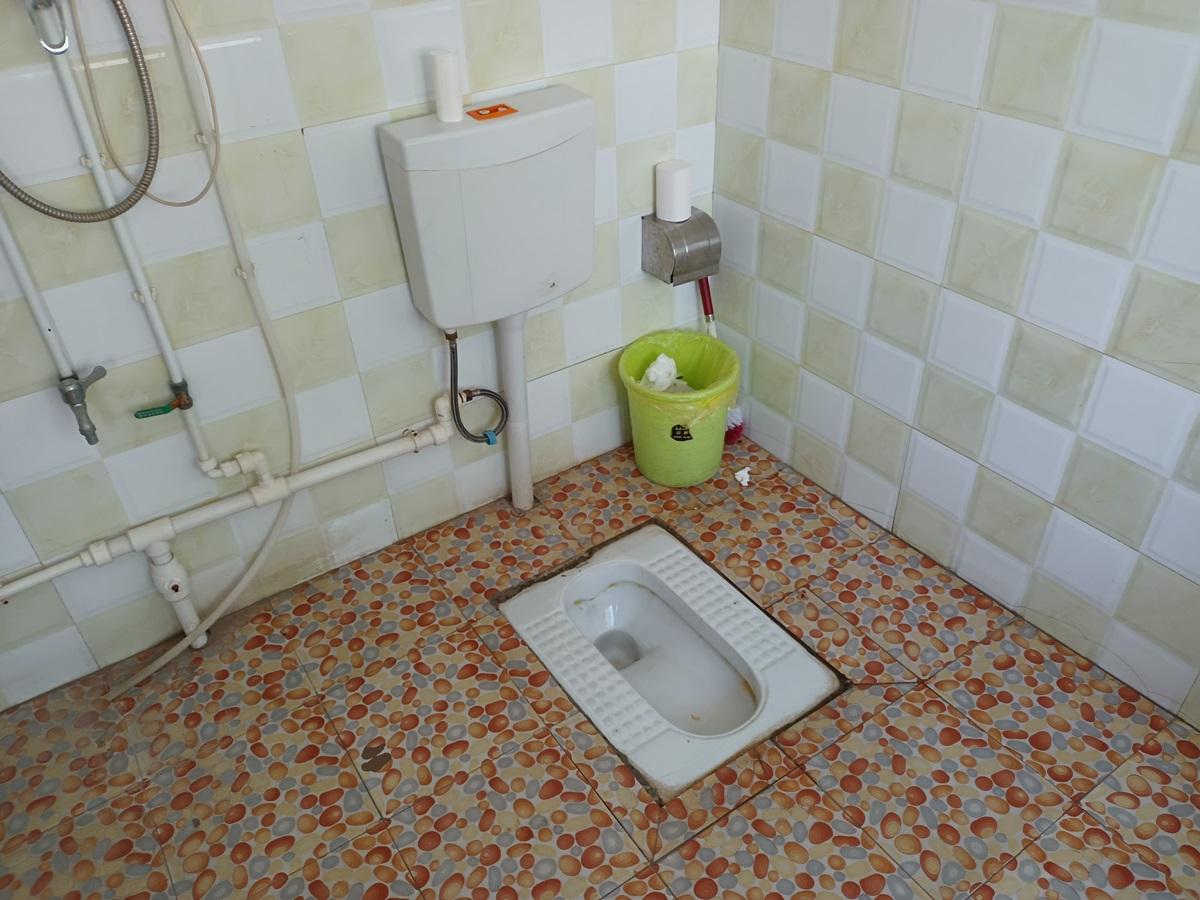
A rare sight – a Chinese toilet with paper provided. Image supplied by Mike Cairnduff.
And finally, the bathroom.
If you’re brave enough to use a Chinese squat toilet , then don’t forget to bring your own toilet paper. It’s not provided, except at hotels.
Similarly, you should BYO hand sanitizer because hand wash or soap isn’t provided in local loos.
It sounds funny to say it, but ‘holding on’ until you get back to your hotel is often your best option.
I hope you liked this special list with US citizens in mind. There’s some more general travel information below, otherwise check out my page on what not to do in China for more helpful advice. Have an amazing time in China!
Main image credit: Krakenimages.com on Shutterstock.
Want more helpful information about China?
Then hop on the monthly newsletter!
One more step: You must click the link in the email we just sent you to confirm your email address.
Helpful resources.
Need help with your trip? Here are some helpful resources:
- See the China travel agency list if you’re looking to join tour groups
- Get a new U.S. passport if yours has less than six months on it
- Familiarize yourself with the food you cannot bring to China
- Don’t forget your China vaccinations especially if you’re going to rural areas or you’ll be around animals.
Assistance for U.S. citizens in China
Hopefully you won’t require consular services, but if you do then here are the contact details for the U.S. embassy in Beijing:
- Address: No. 55 An Jia Lou Road, Chaoyang, Beijing
- Phone: (+86) 10 8531 4000
- Email: [email protected]
- Website: https://china.usembassy-china.org.cn
There are also consulates in Shanghai, Guangzhou, Wuhan and Shenyang.
FAQ for Americans traveling to China
Are americans allowed to go to china right now.
They sure are. China is open and warmly welcomes American tourists.
Is China good for Americans?
Yes, China is good for Americans because it’s safe, there are lots of attractions, and things are cheap.
What should I know before traveling to China?
The main things are to get a VPN if you want to connect with the outside world via Wi-Fi, don’t tip anyone, download Alipay or WeChat for easy payments, and bring toilet tissue everywhere you go.
Is it safe to travel to China as an American?
Yes, China is safe for American citizens. Just remember to follow all local laws and you should be fine.
Is it safe to bring my phone to China?
Of course. In fact, you’ll need your phone to make payments in China, unless you only want to use cash which can be troublesome at small businesses.
Commercial relationship disclosure: The Helpful Panda has commercial arrangements with organizations that may appear on this page, such as affiliate links. See our terms for more info.

Mike Cairnduff
Mike has lived and worked in China, and has traveled extensively across the country. He loves Chinese food and has a keen interest in Chinese culture. You can follow him on X and LinkedIn .
Got a question or comment?
We welcome relevant and respectful dialogue. See our terms for our comment policy.
More Great Content
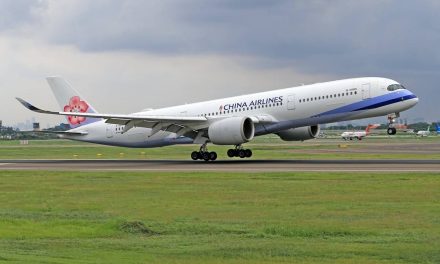
Cheapest time to fly to China (7 ways you can save)
Updated January 13, 2024

The very best things to do in Chengdu
Updated September 1, 2021
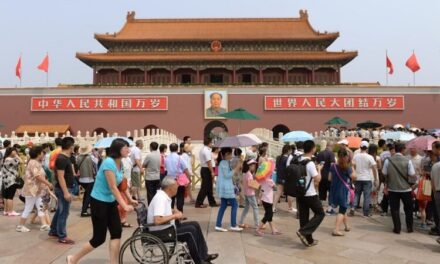
10 tips for your first trip to China
Updated October 17, 2021
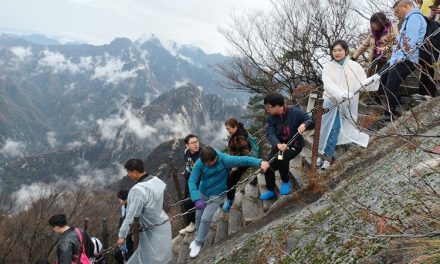
10 tips to help you conquer Huashan Mountain in China
Updated November 7, 2023
Recent Posts

Recent Comments
- Kim Ooi March 18, 2024 on Living in China: the good, the bad, and the bloody ugly
- lgeng March 18, 2024 on Living in China: the good, the bad, and the bloody ugly
- Mike Cairnduff March 10, 2024 on 40 China travel tips for 2024 (I swear by every one)
Ads space (New)
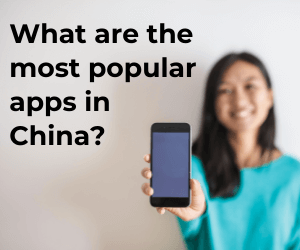
Explore China
Do you want to build your career in China?
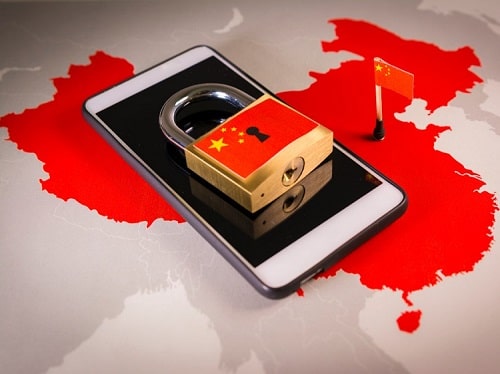
Our writers have all experienced China in person. Support them by subscribing to the free monthly newsletter about visiting China.
US Considers Easing Warnings for Americans Traveling to China

FILE PHOTO: U.S. and Chinese flags are seen in this illustration taken, January 30, 2023. REUTERS/Dado Ruvic/Illustration/File Photo
By Michael Martina and David Brunnstrom
WASHINGTON (Reuters) -The U.S. is considering easing advisories against its citizens traveling to China, Deputy Secretary of State Kurt Campbell said on Tuesday, acknowledging concerns that the warnings may have curtailed exchanges between Americans and Chinese people.
Communication channels between Washington and Beijing had largely normalized after months of heightened tensions, Campbell told an event hosted by the non-profit National Committee on U.S.-China Relations.
However, he also warned that Chinese support for Russia's war in Ukraine put stabilizing ties at risk.
The State Department has periodically issued tiered warnings for Americans traveling to China, calling on them to reconsider visits or exercise increased caution due to risks of "arbitrary enforcement of local laws," exit bans and wrongful detentions.
But the two countries' presidents have sought to rebuild people-to-people exchanges as a pillar for managing increasing geopolitical competition between the superpowers.
Photos You Should See - April 2024

"I don't want to get ahead of ourselves, but I would just simply say that this is certainly an issue under active consideration," Campbell said when asked if the U.S. would ease the advisories. He said he accepted the premise that they had acted as an inhibition to academic and other exchanges.
China has issued its own travel warnings for the U.S., and criticized what it says is increasing harassment of Chinese nationals by U.S. agents at ports of entry, accusations U.S. officials have rejected.
Despite China's warnings, hundreds of thousands of Chinese students study in the United States compared with only a few hundred Americans in China.
But the State Department's No. 2 diplomat, who has said China helped Moscow "retool" and reconstitute its military after early setbacks in its war in Ukraine, cautioned Beijing in stark terms about its "substantial" support for Russia's war effort.
"We have told China directly if this continues, it will have an impact on the U.S.-China relationship. We will not sit by and say everything's fine," Campbell said.
If Russia gains territory in Ukraine it will alter the balance of power in Europe in ways that are unacceptable to the U.S., Campbell said.
"And we will see this not as just a Russian unique set of activities, but a conjoined set of activities backed by China, but also North Korea," he said.
Campbell also said potentially "hundreds of thousands" of Chinese migrants fleeing weaker economic conditions in China have come to the U.S. in recent months, and that Beijing was aware but did not seem to be taking steps to curtail the flow.
"The numbers that we're seeing are large and, frankly, of gathering concern," Campbell said.
(Reporting by Michael Martina, David Brunnstrom and Kanishka Singh; Editing by Sandra Maler and Sonali Paul)
Copyright 2024 Thomson Reuters .
Join the Conversation
Tags: United States , Asia , international trade
America 2024

Health News Bulletin
Stay informed on the latest news on health and COVID-19 from the editors at U.S. News & World Report.
Sign in to manage your newsletters »
Sign up to receive the latest updates from U.S News & World Report and our trusted partners and sponsors. By clicking submit, you are agreeing to our Terms and Conditions & Privacy Policy .
You May Also Like
The 10 worst presidents.
U.S. News Staff Feb. 23, 2024

Cartoons on President Donald Trump
Feb. 1, 2017, at 1:24 p.m.

Photos: Obama Behind the Scenes
April 8, 2022

Photos: Who Supports Joe Biden?
March 11, 2020

RFK Jr.: By the Numbers
Laura Mannweiler April 26, 2024

Biden’s Student Loan Chief to Step Down
Lauren Camera April 26, 2024

What to Know: Bird Flu Virus in Milk
Cecelia Smith-Schoenwalder April 26, 2024

Inflation a Stubborn Foe for the Fed
Tim Smart April 26, 2024

The Curse of the Modern Vice President

‘A Rule for the Ages’
Lauren Camera April 25, 2024

China Travel Restrictions & Travel Advisory (Updated April 25, 2024)
Updates April 25th, 2024: If you book a trip with us, we can arrange a port visa for you to travel to China. China’s port visas are similar to the “visas on arrival” of some other countries. It enables a stay in China for up to 30 days. Contact us to book a trip.
Updates March 7th, 2024 : Travelers from the following countries could enjoy visa-free entry to China for tourism, business, transit, or visiting friends and relatives.
- From December 1st, 2023, to November 30th, 2024: France, Germany, Italy, Netherlands, and Spain.
- From March 14th to November 30th, 2024: Austria, Belgium, Hungary, Ireland, Luxembourg, and Switzerland.
- Singapore, Brunei
- Malaysia (from December 1st, 2023 to November 30th, 2024)
If you want to arrange a private tour, even tentatively, simply contact us .
Content Preview
- What Ways to Enter China
- Do I Still Need a PCR Test to Enter China
- Hong Kong/Macau Travel Restriction
International Flights to China
What to expect when traveling in china, best times to travel to china, 8 ways to enter china: all open now.
Since China has fully permitted visa applications, there are now several ways to enter the country.
If you still hold a valid Chinese visa (any type including a tourist visa, 10-year visa, a port visa, etc.), you can use it to enter China.
If you don't have a Chinese visa or your visa has expired, you can apply for a new one. All visas can now be applied for, including tourist visas, business visas, work visas, and so on. (International visitors can apply for a tourist visa to the Chinese Mainland in Hong Kong.)
For the documents required for a visa application, you can refer to the information given by a Chinese embassy/consulate . Please submit your application at least two months in advance.
To apply for a tourist visa (L visa), you will be asked to provide an invitation letter issued by a Chinese travel agency or individual or round-trip air tickets and hotel bookings.
When booking a private tour with us, we can provide you with an invitation letter, which is one more thing we do to make your travel more convenient, giving you more flexibility with your air tickets and hotel bookings.
Now it is very easy to apply for a visa . You can easily apply by yourself without an intermediary. The following is how one of our clients successfully applied for a Chinese tourist visa:
- First, fill out the form at the China Online Visa Application website ;
- Second, make an appointment on this website to submit your visa materials on Appointment for Visa Application Submission website ;
- Third, take the required documents to the embassy to submit;
- Finally, you will get a return receipt if your documents are qualified.
Usually, you will get your visa after 7 working days. The application fee is about USD185 for US citizens.
Q: What if my passport expires but my visa doesn't?
A: You can travel to China on the expired passport containing valid Chinese visa in combination with the new passport, provided that the identity information (name, date of birth, gender, nationality) on both passport identical.
If there is a change to any of the above details, you must apply for a new visa.
2. 144-Hour Visa-Free Transit Policy
If you do not apply for a Chinese visa, you may still have the opportunity to visit these areas of China visa free: the Shanghai area (including Suzhou, Hangzhou, etc.), the Beijing area (with Tianjin and Hebei), the Guangzhou area (Shenzhen, Zhuhai, etc.), and more. Take advantage of the 6-day visa-free entitlements.
Find out if you could use the 144-hour visa-free transit policy with our information on China's 144-hour Visa-Free Policy (Eligible Entry/Exit Ports, Applicable Countries, Documents to be Prepared...)
You can also obtain entry and exit control policies through the 24-hour hotline of the National Immigration Administration:
- Beijing: 0086 (+86)-10-12367
- Shanghai: 0086 (+86)-21-12367
- Guangzhou: 0086 (+86)-20-12367
Quick Test: Will My Route Qualify for China 72/144-Hour Visa-Free Transit?
1. I will depart from (only applies to direct or connected flight):
2. I will arrive in China at [city], [airport / railway station / port].
3. My arrival date is...
4. I will leave for [country/region] from China (the bounding destination on the air ticket):
5. My departure date is...
6. My nationality is...
8. I have Chinese visa refusal stamps in my passport.
You qualify to enjoy China's 72-hour visa-free policy.
You qualify to enjoy China's 144-hour visa-free policy.
You don't qualify to enjoy China's 72-hour or 144-hour visa-free policy.
Reason you don't qualify:
- You must be in transit to a third country or region.
- You must leave the city area (prefecture or municipality) after the 72/144 hours (the 72/144-hour limit is calculated starting from 00:00 on the day after arrival, i.e. 24:00 on the arrival date).
- Your passport must be valid for more than 3 months at the time of entry into China.
- Your passport nationality is not eligible for the 72/144-hour visa exemption program.
- You have Chinese visa refusal stamps in your passport.
3. Port Visas (Landing Visas)
If you don't have time to get a visa, or if you find it cumbersome to apply for a tourist visa, you could consider traveling to China through a port visa.
Port visas can be applied for a group at least including 2 people. You need to enter the country within 15 days after you get your entry permit. The port visa allows a stay period of 1 to 2 months.
Applicable ports include Beijing, Shanghai, Hangzhou, Guangzhou, Xiamen, Guilin, Xi'an, Chengdu, etc.
Note: Tourists from America are not granted a port visa in Shanghai.
Book your China trip with us and we can help you apply for a port visa.
4. Visa Exemption for ASEAN Tour Groups to Guilin
In addition, tour groups from ASEAN member countries, including Malaysia, Thailand, Indonesia, Vietnam, Cambodia, Laos, Singapore, Myanmar, Brunei, and the Philippines, can visit Guilin for 144 hours without visas as long as they meet the visa-free transit policy requirements.

5. Shanghai Visa-Free Policy for Cruise Groups
Shanghai has a 15-day visa-free policy for foreign tourist groups entering China via a cruise. You must arrive and depart on the same cruise and be received by a Chinese travel agent at the Shanghai Cruise Terminal (or Wusong Passenger Center).
6. Hainan Visa-Free Access
No visa is required for staying on Hainan Island for up to 30 days for ordinary passport holders from 59 countries. Groups and individual tourists must book a tour through an accredited travel agency.
Find out whether you qualify for the policy here .
7. Visa Exemption for the Pearl River Delta Area
International travelers from Hong Kong or Macau are able to visit the Pearl River Delta area (Guangzhou, Shenzhen, Zhuhai, etc.) visa-free as long as they go with a registered tour provider, such as us.
8. APEC Cards
If you hold a valid APEC business travel card, you can simply enter China with the card without applying for a visa.
Travelers who hold a valid APEC business travel card can stay in China for up to 60 days.
- 4-Day Beijing Private Tour - Essence of Beijing
- 11-Day Beijing–Xi'an–Guilin–Shanghai Tour - Classic Wonders
- 13-Day Beijing, Xi'an, Chengdu, Shanghai Educational Family Vacation
Do I Still Need a PCR Test or Antigen Self-Test to Enter China
No. Starting from August 30, all travelers entering China will no longer need to undergo any COVID-19 testing. You do not need to submit any test results for COVID-19 before departure.
- 8-Day Beijing–Xi'an–Shanghai Private Tour - China Golden Triangle
- 13-Day Riches of China - Beijing – Xi'an – Guilin/Yangshuo – Hangzhou - Suzhou – Shanghai
Hong Kong / Macau Travel Restriction
Hong kong entry requirements.
Travelers from any region bound for Hong Kong will no longer need to take pre-flight COVID-19 tests (no PCR test, no RAT test) from April 1.
There is also no need for any tests when traveling from Hong Kong to the Chinese Mainland. Hong Kong could be a good gateway for your China trip. See suggestions on China Itineraries from Hong Kong (from 1 Week to 3 Weeks).
Direct high-speed trains from Guangzhou and Shenzhen to Hong Kong are available now. In preparation for the Canton Fair, it is expected that direct high-speed ferries will be launched from Guangzhou Pazhou Port to Hong Kong's airport in mid-April.
- 10 Top China Tours from Hong Kong
Macau Entry Requirement
From August 30, travelers from any region bound for Macau will no longer need to take pre-flight COVID-19 tests (no PCR test, no RAT test).
There is also no need for any tests when traveling from Macau to the Chinese Mainland.
Inbound and outbound international flights in the week beginning March 6th rose by more than 350% compared with a year earlier, to nearly 2,500 flights, according to Chinese flight tracking data from APP Flight Master.
At present, there are one or two direct flights a week from New York to Shanghai, Los Angeles to Beijing, Seattle to Shanghai, London to Guangzhou, etc.
There are also many flight options with stopovers that are more frequent and affordable. Testing at transit airports is now not required!
The Coronavirus outbreak in China has subsided. China looks like it did in 2019 again. No special measures (like PCR tests or health codes) are required when traveling around China. All attractions are open as normal.
Wearing a mask is not mandatory when traveling. In hotels, masks are off for the most part. But in some crowded places, such as airports or subway stations, many people still wear masks.
Weather-wise, the best times to visit China are spring (April–May) and autumn (September–October), when most of the popular places have their most tourism-friendly weather, except for the "golden weeks" — the first week of May and of October — when most attractions are flooded with Chinese tourists.
If you are looking for smaller crowds, favorable prices, and still good weather, you should consider March and April or September.
Tourism in cultural and historical destinations like Beijing, Shanghai, and Xi'an is hardly affected by weather conditions. They are suitable to be visited all year round.
- 11-Day Family Happiness - Beijing–Xi'an–Guilin/Yangshuo-Shanghai
- 13-Day Private Tour: Beijing – Xi'an – Chengdu –Yangtze Cruise – Shanghai - China Essence and Panda Tour
- More Chengdu and Panda tours
Discover real reviews of Highlights Travel Family 's best-rated service across trusted platforms.
Tour China with Us
We've been building our team for over 20 years. Even over the past three years we have continued, serving over 10,000 expats with China tours and getting a lot of praise (see TripAdvisor ).
We are based in China and can show you the characteristics and charm of China from a unique perspective. Just contact us to create your China trip .
Our consultants will listen to and answer your inquiries carefully and prepare the best plan for you.
- 8-Day Beijing–Xi'an–Shanghai Highlights Tour — the classic Golden Triangle
- 11-Day Beijing–Xi'an–Guilin–Shanghai — our top itinerary for families
- 2-Week Beijing – Xi'an – Chengdu – Yangtze Cruise – Shanghai Tour — the best choice for panda fans
- 2-Week China Essence and Panda Tour
- 9-Day Beyond the Golden Triangle
- 8-Day Beijing–Xi'an–Shanghai Private Tour
- 12-Day Beijing, Xi'an, Guilin, Shanghai Tour for Your Summer Vacation
- 15 Best Places to Visit in China (2024)
- Best (& Worst) Times to Visit China, Travel Tips (2024/2025)
- How to Plan a 10-Day Itinerary in China (Best 5 Options)
- 8 Days in China: Top 15 Tours and Itineraries (2024/2025)
- China Weather in January 2024: Enjoy Less-Crowded Traveling
- China Weather in February 2024: Places to Go, Costs, and Crowds
- China Weather in March 2024: Destinations, Crowds, and Costs
- China Weather in April 2024: Where to Go (Smart Pre-Season Pick)
- China Weather in May 2024: Where to Go, Crowds, and Costs
- China Weather in June 2024: How to Benefit from the Rainy Season
- China Weather in July 2024: How to Avoid Heat and Crowds
- China Weather in August 2024: Weather Tips & Where to Go
- China Weather in September 2024: Weather Tips & Where to Go
- China Weather in October 2024: Where to Go, Crowds, and Costs
- China Weather in November 2024: Places to Go & Crowds
- China Weather in December 2024: Places to Go and Crowds
Get Inspired with Some Popular Itineraries
More travel ideas and inspiration, sign up to our newsletter.
Be the first to receive exciting updates, exclusive promotions, and valuable travel tips from our team of experts.
Why China Highlights
Where can we take you today.
- Southeast Asia
- Japan, South Korea
- India, Nepal, Bhutan, and Sri lanka
- Central Asia
- Middle East
- African Safari
- Travel Agents
- Loyalty & Referral Program
- Privacy Policy
Address: Building 6, Chuangyi Business Park, 70 Qilidian Road, Guilin, Guangxi, 541004, China
clock This article was published more than 1 year ago
Everything you need to know about traveling to China
China is finally reopening to foreign tourists after ending its ‘zero covid’ policies.

Three years after shutting down to outsiders, China is finally beginning to issue visas to foreign tourists.
As of March 15 , the country will begin issuing all categories of visas, including those for tourism. China will allow visa-free entry to areas such as the island of Hainan and for cruise ships visiting Shanghai. Multiyear, multiple-entry visas issued before March 28, 2020, will be accepted by Chinese visa authorities as long as they’re still valid.
The country dropped its severe mandatory quarantine on arrival on Jan. 8 , and now only requires travelers to show negative results from a coronavirus test (PCR or rapid, depending on their country of origin) taken within 48 hours of departure.
It’s an exciting move for many American travelers.
“As soon as China relaxed its covid restrictions and started allowing their own citizens to travel, we had a huge influx of people wanting to start planning their trip,” John Rose, chief risk and security officer of the travel agency Altour , said in January.
Angela Hughes, owner of Trips & Ships Luxury Travel , has seen similar interest from clients, and is anticipating the country to become a “sizzling hot” destination once the doors fully open.
If you’re considering planning a trip to China, here’s what you need to know before you go.
The top travel destinations for 2023, according to experts
When can you start planning a trip to China?
Travelers interested in visiting China may apply for entry visas and start planning trips now.
Tourism experts started getting trips on the schedule even before the return of China’s tourist visas. The small-group tour company Intrepid Travel plans to host its first trip in mainland China since January 2020 by June. The company’s partners on the ground in China are actively preparing for the return of tourism, says Natalie Kidd, Intrepid’s Asia division managing director.
How to get refunds if your flight is canceled
Going as soon as China allows won’t be for everybody. Hughes says first-time visitors, families or more risk-averse travelers may want to wait until 2024, when the situation becomes more stable. More adventurous travelers are another story. “I’m definitely going to go right when it opens,” Hughes said in January.
Although China is open for tourism, Catherine Heald, CEO of the luxury travel company Remote Lands , is bracing for more complications.
Citing concerns like limited international commercial flights into China and remaining pandemic restrictions, “we think it will be a slower process than what we witnessed in Japan, Thailand and other parts of Asia,” she said in an email.
What to know about coronavirus protocols in China
With the end of its “zero covid” strategy, China has dropped significant measures like its frequent coronavirus testing and digital health codes for locals, or presenting negative covid tests or health certificates to travel within the country. China is also easing restrictions on the number of flights allowed in.
However, the U.S. Embassy in China warns the country’s policies are subject to change at any time.
For now, the main pandemic restriction in place is for travelers. According to a March 14 news conference from China’s foreign ministry spokesperson Wang Wenbin, China has begun accepting negative results from rapid tests (depending on your country of origin — at this time, Americans should default to PCR testing ). Tests must be taken within 48 hours of departure to China. Kidd says masks are still recommended in China, but not mandated in public areas (except for places like hospitals and clinics) and no quarantines or isolation are required if someone does get covid-19.
This airline booking hack is dividing the internet
What are the risks of visiting as soon as possible?
As of March, the U.S. State Department has a Level 3: Reconsider Travel advisory for China (along with Hong Kong and Macao) due to the “arbitrary enforcement of local laws,” its website reads . Travelers considering a trip to China should refer to the State Department’s entire travel information page for updates on travel advisories and country information.
Neil Slabbert, World Travel Protection ’s chief medical officer for the Asia-Pacific region, says travelers need to be aware of the potential of lockdowns by local authorities that can make accessing health care difficult. There were also reports last spring of parents and children being separated if one or the other tested positive for covid. Travelers should prepare accordingly, and have emergency plans in place (like where they’ll get food, water and medicine) in case of lockdowns or infection.
Rose says those considering a trip should keep an eye on the information we have available at the time of booking, throughout your planning and just before you travel. Don’t forget what reopening looked like for other regions in 2021 and 2022. Countries implemented and removed restrictions “very, very quickly” in reaction to covid cases, and China may be no different.
Hughes says such risks make travel insurance a nonnegotiable for anyone going to China. “Every single person traveling internationally right now needs to have a complete policy above and beyond their credit card’s,” she said, recommending the companies she uses, Allianz and AIG .
What I learned on a two-week trip to Vietnam and Cambodia
What travel will be like once you get there
Like every place in the infancy of its pandemic reopening, China won’t be back to “normal” for the first returning travelers.
Kidd says China is still the same amazing destination with iconic sites and fantastic food, but tourism won’t immediately be the well-oiled machine it once was. Intrepid’s vendors have noted that, as in the rest of the world, many people left China’s tourism industry, and there will be lot of new people entering the field as businesses staff up again.
“We’re having the dialogue that we had two years ago when Europe opened up now with China,” Hughes said.
No matter the method, Kidd says there’s one big perk of returning early: being able to see the country’s highlights with fewer visitors.
More spring travel tips
Trends: Cheaper spring break | Cool all-inclusives | Let ChatGPT plan your day | Is it safe to go to Mexico? | Book a free night in Sicily
The basics: Tip without cash | Traveling with kids | Decide where to stay | A pre-trip checklist of house chores | How to get your passport | Plan a ski trip | Eat without feeling terrible | Budget for your next trip | Plan a cheaper Disney trip
Flying: Fly like a decent human being | How to set airfare price alerts | Flying with an injury | PreCheck vs. Global Entry vs. CLEAR | Can I fly with weed? | AirTag your luggage | Airport parking 101 | Deal with airport crowds | Why Stalk airfare after booking
Driving: 9 tips for road tripping with a baby | Try the Airbnb of rental cars | Rent an EV | Do I need an international license to drive abroad? | Avoid big rental car fees
Greener travel: Bike to the airport | How environmentalists travel | How to find ‘greener’ flights | Make your travel better for the planet
Pets: How to travel with pets | Why the pet fee? | Pet flying 101 | Alternatives to flying with your pet
In case of emergency: Manage airport disasters | Your flight is canceled | How to get a human on the phone | What to do if your car gets stuck | Find your lost luggage | How to get a refund for a canceled flight | Deal with a bad hotel room | When you’re bumped off your flight | If you get rebooked without your family | What are my rebooking rights? | Recover a lost item at TSA, the airport or your flight

US issues level 3 travel advisory to China amid safety concerns. Here's what to know

Are you thinking about traveling to China to visit or study abroad? The U.S. government suggests reconsidering your trip for now.
According to the U.S. Department of State , traveling to China is under a level 3 travel advisory , warning Americans to reconsider. The State Department has four warning levels. The fourth is “Do not travel.”
Is it safe to travel to China right now?
The U.S. is asking Americans to reconsider traveling to China due to various reasons, including concerns about health and safety, such as the prevalence of contagious diseases like COVID-19, as well as political tensions or security risks in certain regions.
As of April 12, there are some specific areas that the U.S. is asking people to reconsider travel to. Those areas include:
- Mainland China due to the arbitrary enforcement of local laws, including exit bans and the risk of wrongful detentions.
- Exercise increased caution when traveling to the Hong Kong SAR due to the arbitrary enforcement of local laws.
- Reconsider travel to the Macau SAR due to a limited ability to provide emergency consular services.
Additionally, the U.S. government may issue travel advisories based on factors like civil unrest, natural disasters, or other hazards that could affect travelers' well-being.
Americans detained in China
Mark Swidan — a man from Houston, Texas — has been detained in China for over 10 years on drug charges. According to The Texas Tribune , Swidan was detained in China in 2012 while on a trip looking for materials for his home and business in Houston. Chinese authorities arrested him after his driver and translator were found in possession of drugs. The driver blamed Swidan, who is accused of trafficking and manufacturing methamphetamine.
A review of Swidan’s case said there were no drugs on him or in his hotel. Last year, the Republic of China’s Jiangmen Intermediate Court denied Swidan’s appeal and upheld his death penalty with a two-year suspended death sentence.
Other Americans considered wrongfully detained include Chinese American businessman Kai Li from Long Island, N.Y., and California pastor David Lin.
What countries have a Level 3 travel warning?
- Trinidad & Tobago
- El Salvador
- South Sudan
- Democratic Republic of the Congo
- Papua New Guinea
- Saudi Arabia
What countries have a Level 4 travel warning?
- Afghanistan
- Central African Republic
- North Korea (Democratic People's Republic of Korea)
- Burkina Faso
Traveling abroad? Here are some safety tips
U.S. citizens are encouraged to enroll in the State Department’s free Smart Traveler Enrollment Program and to prepare contingency plans for emergencies.
Safety tips if you're traveling outside the U.S.:
- Don't travel alone.
- Be aware of your surroundings.
- Keep a low profile.
- Try not to be flashy.
- Avoid going to places at night, especially by yourself.
With new China travel restriction in place, Asian Americans urge nuanced caution

Following the Biden administration’s implementation of a new Covid-19-related travel requirement for passengers flying in from China, Asian American advocates and experts are urging caution and nuance amid years of heightened anti-Asian violence.
Several Asian American organizations and leaders have expressed concern over the requirement of a pre-departure negative Covid test from those flying in from the country. The policy, implemented by the Centers for Disease Control and Prevention last week, triggered fears that such rules could lead to racist fallout, particularly during a period of heightened anti-Asian and anti-Chinese sentiment.
“What I would ask everyone to do is, again, be careful not to conflate the virus with an ethnicity or a group of people,” said John C. Yang, president and executive director of Asian Americans Advancing Justice | AAJC. “When we have seen these types of policies, there are always those people on the fringe that will use it as an excuse to scapegoat our community as a whole or take it as a way of targeting a community.”
The CDC did not respond to NBC News’ request for comment.
As of Thursday, the health organization now requires a negative result within two days of departure, or proof of recovery within the last 90 days, for all air passengers from China, Hong Kong and Macao. The new rule comes as cases surged after the country eased its "zero-Covid" approach last month in response to mass protests across the nation. Beijing lifted its quarantine requirements for travelers as well as its own domestic rules. In turn, cases skyrocketed and the nation soon witnessed a rapid overcrowding and congestion of medical facilities.
According to the CDC, the new travel precautions were a necessity given the lack of transparency and adequate data from Beijing. But some groups like Stop AAPI Hate, a nonprofit that tracks incidents of hate and discrimination against Asian Americans and Pacific Islanders, strongly opposed the policy. The group pointed to previous travel restrictions under the Trump administration in January 2020 that coincided with a rise in hate incidents against the racial group.
Since March 2020, one-fifth of the 11,467 incidents reported to Stop AAPI Hate over the course of more than two years scapegoated Asians and Asian Americans, “wrongfully blaming them for COVID-19, espionage on behalf of the Chinese Communist Party, or economic insecurity,” according to a report from the organization .
“It is also yet another example of the government’s historical penchant for perpetuating the racist trope of Asian foreigners bringing diseases to America,” Cynthia Choi, a co-founder of the organization, said in a statement. “We are still receiving reports of hate incidents blaming Asians and Asian Americans for the pandemic as a result of the government’s actions in 2020; three years later, there is no excuse for repeating the same mistakes.”
Both the nonprofit and Yang pointed out another concern: that the policy appears to single out China among other countries that have similar Covid rates. But from a health standpoint, Dr. Tung Nguyen, a professor of medicine at the University of California, San Francisco, said the issue is complex. Thus far, medical experts are still unsure of the severity of the country’s Covid spread. Without transparency from China, particularly in data around possible variants, transmission to the U.S. could have a significant impact, he added.
“If there is a variant there that may not be covered by our vaccines and/or not responsive to the drugs we currently have, introducing that to the US could be devastating,” Nguyen said in an email. “This is the justification for picking on China as opposed to other countries at least.”
Still, the policy’s efficacy remains questionable. Nguyen said that the rule could help slow the spread for a few weeks, but if travelers who have visited China end up going to other countries and infecting others there, then returning to the U.S. without testing, there won’t be much of a long-term benefit.
Yang said that ultimately, the policy itself isn’t the main concern, but rather the larger anti-Chinese environment under which the rule has been imposed. And it’s an issue that extends beyond the pandemic. Citing the many Asian American scientists who have been falsely accused of espionage and the formation of the House Select Committee on China, Yang said the Sinophobic sentiment could fuel the undercurrent of racism in the U.S.
“We recognize that there are true national security concerns as it relates to the Chinese government,” Yang said. “But we are concerned that that is another place where it will be an excuse to China-bash and thereby cause a backlash against Chinese Americans and the Asian American community as a whole.”
While some may attempt to use the travel rules as justification for nationalism amid tense U.S.-China foreign relations, Yang said much has changed since the beginning of the pandemic, when many in the public were less aware of how language and policies could affect Asian Americans. And he’s hopeful that lawmakers, influencers and others have a better awareness of how to discuss these public health matters.
Kimmy Yam is a reporter for NBC Asian America.
- Election 2024
- Entertainment
- Newsletters
- Photography
- Personal Finance
- AP Investigations
- AP Buyline Personal Finance
- AP Buyline Shopping
- Press Releases
- Israel-Hamas War
- Russia-Ukraine War
- Global elections
- Asia Pacific
- Latin America
- Middle East
- Election Results
- Delegate Tracker
- AP & Elections
- Auto Racing
- 2024 Paris Olympic Games
- Movie reviews
- Book reviews
- Personal finance
- Financial Markets
- Business Highlights
- Financial wellness
- Artificial Intelligence
- Social Media
US recommends Americans reconsider traveling to China due to arbitrary law enforcement and exit bans
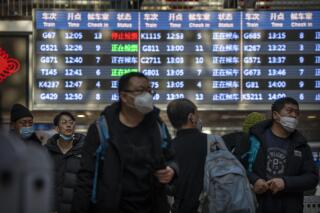
Travelers walk along a concourse at Beijing West Railway Station in Beijing, Wednesday, Jan. 18, 2023. (AP Photo/Mark Schiefelbein)
- Copy Link copied
BEIJING (AP) — The U.S. recommended Americans reconsider traveling to China because of arbitrary law enforcement and exit bans and the risk of wrongful detentions.
No specific cases were cited, but the advisory came after a 78-year-old U.S. citizen was sentenced to life in prison on spying charges in May.
It also followed the passage last week of a sweeping Foreign Relations Law that threatens countermeasures against those seen as harming China’s interests.
China also recently passed a broadly written counterespionage law that has sent a chill through the foreign business community, with offices being raided, as well as a law to sanction foreign critics.
“The People’s Republic of China (PRC) government arbitrarily enforces local laws, including issuing exit bans on U.S. citizens and citizens of other countries, without fair and transparent process under the law,” the U.S. advisory said.
“U.S. citizens traveling or residing in the PRC may be detained without access to U.S. consular services or information about their alleged crime,” it warned.
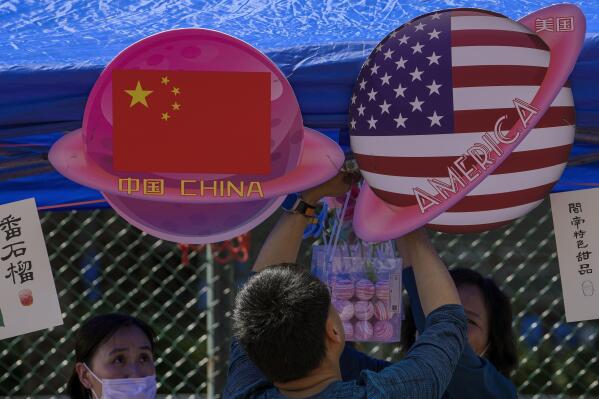
The advisory also said that Chinese authorities “appear to have broad discretion to deem a wide range of documents, data, statistics, or materials as state secrets and to detain and prosecute foreign nationals for alleged espionage.”
It listed a wide range of potential offenses from taking part in demonstrations to sending electronic messages critical of Chinese policies or even simply conducting research into areas deemed sensitive.
Exit bans could be used to compel individuals to participate in Chinese government investigations, pressure family members to return from abroad, resolve civil disputes in favor of Chinese citizens and “gain bargaining leverage over foreign governments,” the advisory said.
Similar advisories were issued for the semi-autonomous Chinese regions of Hong Kong and Macao. They were dated Friday and emailed to journalists on Monday.
The U.S. had issued similar advisories to its citizens in the past, but those in recent years had mainly warned of the dangers of being caught in strict and lengthy lockdowns while China closed its borders for three years under its draconian “zero-COVID” policy.
China generally responds angrily to what it considers U.S. efforts to impugn its authoritarian Communist Party-led system. It has issued its own travel advisories concerning the U.S., warning of the dangers of crime, anti-Asian discrimination and the high cost of emergency medical assistance.
China had no immediate response to the travel advisory on Monday.
Details of the accusations against the accused spy John Shing-Wan Leung are not available, given China’s authoritarian political system and the ruling Communist Party’s absolute control over legal matters. Leung, who also holds permanent residency in Hong Kong, was detained in the southeastern city of Suzhou on April 15, 2021 — a time when China had closed its borders and tightly restricted movement of people domestically to control the spread of COVID-19.
The warnings come as U.S.-China relations are at their lowest in years , over trade, technology, Taiwan and human rights, although the sides are taking some steps to improve the situation. U.S. Secretary of State Antony Blinken made a long-delayed visit to Beijing last week and Treasury Secretary Janet Yellen is making a much-anticipated trip to Beijing this week. China also recently appointed a new ambassador to Washington, who presented his credentials in a meeting with President Joe Biden at the White House.
Other incidents, however, have also pointed to the testiness in the relationship. China formally protested last month after Biden called Chinese leader Xi Jinping a “dictator,” days after Blinken’s visit.
Biden brushed off the protest, saying his words would have no negative impact on U.S.-China relations and that he still expects to meet with Xi sometime soon. Biden has also drawn rebukes from Beijing by explicitly saying the U.S. would defend self-governing Taiwan if China, which claims the island as its own territory, were to attack it.
Biden said his blunt statements regarding China are “just not something I’m going to change very much.”
The administration is also under pressure from both parties to take a tough line on China, making it one of the few issues on which most Democrats and Republicans agree.
Along with several detained Americans, Two Chinese-Australians, Cheng Lei, who formerly worked for China’s state broadcaster, and writer Yang Jun, have been held since 2020 and 2019 respectively without word on their sentencing.
Perhaps the most notorious case of arbitrary detention involved two Canadians, Michael Kovrig and Michael Spavor, who were detained in China in 2018, shortly after Canada arrested Meng Wanzhou, Huawei Technologies’ chief financial officer and the daughter of the tech powerhouse’s founder, on a U.S. extradition request.
They were charged with national security crimes that were never explained and released three years later after the U.S. settled fraud charges against Meng. Many countries labeled China’s action “hostage politics.”
- Search Please fill out this field.
- Manage Your Subscription
- Give a Gift Subscription
- Sweepstakes
China Is Making It Easier for Americans to Visit — Here’s How
Going forward, China will no longer require travelers to show proof of a round-trip air ticket or proof of a hotel reservation.
:max_bytes(150000):strip_icc():format(webp)/alison-fox-author-pic-15f25761041b477aaf424ceca6618580.jpg)
Xuanyu Han/Getty Images
China will make it easier for American tourists to visit, simplifying the visa process for 2024.
Going forward, the country will no longer require travelers from the United States to submit proof of a round-trip air ticket, proof of a hotel reservation, proof of their itinerary, or an invitation letter to apply for a tourist visa, according to the Chinese Embassy in the United States . The new rules went into effect on Jan. 1.
“To further facilitate people-to-people exchanges between China and the United States… the Chinese Embassy and Consulates-General in the United States will simplify application documents required for [a] tourist visa (L-visa),” the embassy wrote in a statement.
The embassy added: “visa applications are processed on a case-by-case basis.”
Travelers from the U.S. are still required to obtain a visa to visit China, but may stay visa-free for as long as six days if they are transiting through the country, according to the government . The duration of the visa-free period and specific rules vary by port of entry.
The simplified process comes weeks after China dropped visa requirements for visitors from six countries, according to the National Immigration Administration : France, Germany, Italy, Malaysia, the Netherlands, and Spain. China has similarly expanded its visa-free transit policy to cover 54 countries.
China boasted one of the strictest COVID-19 border policies in the world, only reopening to tourism in March last year and finally dropping mandatory COVID-19 testing for incoming travelers in August. However, the country has struggled to match pre-pandemic international flight levels, Reuters reported , and is currently at only 60 percent of 2019 levels.
Despite being easier to visit, the U.S. Department of State warns travelers to “reconsider travel” to mainland China “due to the arbitrary enforcement of local laws, including in relation to exit bans, and the risk of wrongful detentions.” The State Department classifies Hong Kong under a lesser warning, telling Americans to “exercise increased caution” there.
Update April 12, 2024
Information for u.s. citizens in the middle east.
- Travel Advisories |
- Contact Us |
- MyTravelGov |
Find U.S. Embassies & Consulates
Travel.state.gov, congressional liaison, special issuance agency, u.s. passports, international travel, intercountry adoption, international parental child abduction, records and authentications, popular links, travel advisories, mytravelgov, stay connected, legal resources, legal information, info for u.s. law enforcement, replace or certify documents.
Share this page:
Learn about your destination
Take 90 seconds for safer travel.
Travel Advisory Levels
Enroll in step.

Subscribe to get up-to-date safety and security information and help us reach you in an emergency abroad.
Recommended Web Browsers: Microsoft Edge or Google Chrome.
External Link
You are about to leave travel.state.gov for an external website that is not maintained by the U.S. Department of State.
Links to external websites are provided as a convenience and should not be construed as an endorsement by the U.S. Department of State of the views or products contained therein. If you wish to remain on travel.state.gov, click the "cancel" message.
You are about to visit:
Why is Christian Science in our name?
Our name is about honesty. The Monitor is owned by The Christian Science Church, and we’ve always been transparent about that.
The Church publishes the Monitor because it sees good journalism as vital to progress in the world. Since 1908, we’ve aimed “to injure no man, but to bless all mankind,” as our founder, Mary Baker Eddy, put it.
Here, you’ll find award-winning journalism not driven by commercial influences – a news organization that takes seriously its mission to uplift the world by seeking solutions and finding reasons for credible hope.
Your subscription makes our work possible.
We want to bridge divides to reach everyone.

Get stories that empower and uplift daily.
Already a subscriber? Log in to hide ads .
Select free newsletters:
A selection of the most viewed stories this week on the Monitor's website.
Every Saturday
Hear about special editorial projects, new product information, and upcoming events.
Select stories from the Monitor that empower and uplift.
Every Weekday
An update on major political events, candidates, and parties twice a week.
Twice a Week
Stay informed about the latest scientific discoveries & breakthroughs.
Every Tuesday
A weekly digest of Monitor views and insightful commentary on major events.
Every Thursday
Latest book reviews, author interviews, and reading trends.
Every Friday
A weekly update on music, movies, cultural trends, and education solutions.
The three most recent Christian Science articles with a spiritual perspective.
Every Monday
Only 700 Americans are studying in China. Will the US lose a generation of experts?
- Deep Read ( 5 Min. )
- By Ann Scott Tyson Staff writer
April 23, 2024 | Beijing
The pandemic caused the number of U.S. university students in China to plummet from nearly 12,000 in 2019 to only 211 in 2022. U.S.-China tensions are keeping those numbers low, with only about 700 American students in mainland China today.
The U.S. State Department recommends that Americans “reconsider” travel to China due to the arbitrary enforcement of local laws and the risk of wrongful detentions. The “Level 3” travel advisory – the second-highest warning category – is a “clear signal to general counsels at universities that they ought to reconsider their study-abroad programs in China,” says Scott Kennedy, senior adviser and trustee chair in Chinese business and economics at the Center for Strategic and International Studies, a think tank in Washington.
Why We Wrote This
Persistent restrictions on U.S.-China travel have put would-be American study-abroad students in a tight spot – and they also risk robbing the United States of its next generation of China experts.
But the collapse of the U.S. student population in China also risks depriving the United States of its next cohort of China specialists, fluent in Mandarin Chinese, who can help navigate what is arguably the world’s most consequential political relationship, experts say. As the two countries engage in a wide-ranging competition, skillful management is critical to prevent conflict.
“The U.S. really needs a new generation of China experts to understand China – whether friend or foe,” says Dr. Kennedy.
When Sam Trizza got the news last April that he’d won a prestigious Boren Fellowship for Chinese-language study, he literally leaped for joy, throwing a fist in the air.
But as he read the congratulatory letter, he felt a wave of disappointment. The Boren Awards had decided not to fund study in his destination country: China. Going to China anyway would mean turning down a $30,000 fellowship.
“It was very frustrating,” he says.
Mr. Trizza’s dilemma is just one example of the hurdles confronting American youth who want to study in China.
The pandemic shut China’s doors and caused the number of U.S. university students here to plummet – from nearly 12,000 in 2019 to only 211 in 2022. U.S.-China tensions are keeping those numbers low, with only about 700 American students in mainland China today.
The collapse of the U.S. student population in China risks depriving the United States of its next cohort of China specialists, fluent in Mandarin Chinese, who can help navigate what is arguably the world’s most consequential political relationship, experts say. As the two countries engage in a wide-ranging competition, skillful management is critical to prevent conflict.
“The U.S. really needs a new generation of China experts to understand China – whether friend or foe,” says Scott Kennedy, senior adviser and trustee chair in Chinese business and economics at the Center for Strategic and International Studies (CSIS), a think tank in Washington.
Beijing and Washington agree it will serve their interests to rebuild the ranks of U.S. students here. Decades of U.S.-China student and scholarly exchanges have brought huge benefits to both countries, such as pathbreaking research in science and technology. But whether they can remove key obstacles remains uncertain, given the intense focus in both capitals on national security.
A major inhibiting factor, says Dr. Kennedy, is “concerns about China’s domestic political environment and how that might affect the student experience.”
Mr. Trizza felt those concerns. Safety considerations drove the decision by Boren administrators to deny funds for China study, he learned. Meanwhile, worried relatives quizzed him about his plans.
Despite the pressure, he chose China. He gave up the fellowship and enrolled last September in a master’s program at the Hopkins-Nanjing Center, part of the Johns Hopkins School of Advanced International Studies.
“I came to China on my own because I knew it was important,” he says over coffee in a Beijing cafe during spring break. He pauses and turns sober. “And – I hate to say this – while Americans still can come to China.”
Students face new hurdles
Zhao Gu Gammage, a junior at Haverford College in Pennsylvania, wanted to learn Chinese and see the country where she was born and lived until her adoption at the age of 11 months by an American couple. She, too, faced obstacles.

Haverford required her to obtain special approval from a school board before she could even apply for China study – asking her to write a letter explaining her choice.
“Colleges want to ... limit the liability as much as they can,” says Ms. Gammage. She’s the only member of her class of 400 to major in East Asian languages and cultures, and the first Haverford student in five years to study in China. “The last thing they want,” she says, “is a news headline saying something happened to their student in China.”
China’s government has tightened its grip domestically in recent years, using “exit bans” to stop some foreigners from leaving. It has heightened surveillance and political controls on university campuses, intensified internet censorship, and fortified the firewall that blocks Google, Facebook, LinkedIn, and other American social media. Ms. Gammage is excited to be living in Shanghai, but says she found the biometric scanning that is required to enter her university “very jarring.”
The U.S. State Department recommends that Americans “reconsider” travel to China due to the arbitrary enforcement of local laws, including in relation to exit bans, and the risk of wrongful detentions. The “Level 3” travel advisory – the second-highest warning level – is a “clear signal to general counsels at universities that they ought to reconsider their study-abroad programs in China,” Dr. Kennedy says.
Some U.S. universities have canceled their China study-abroad programs, redirecting students to Taiwan. For example, Dickinson College in Pennsylvania suspended its China program due to the Level 3 travel advisory. “If and when that advisory is changed, Dickinson will reevaluate,” spokesperson Craig Layne wrote in an email.
Still, there are signs of progress.
Adam Webb, co-director of the Hopkins-Nanjing Center, says applications to the center are up. “I do get questions about security and arbitrary detentions,” he says, but notes that “we have never had that happen to the HNC community in 40 years.”
Stanford University approved a new pilot initiative this spring to bring 20 undergraduates to the Stanford Center at Peking University, relaunching its China program for the first time since the pandemic. “We had twice as many applicants as we had slots,” says Jean Oi, SCPKU director and William Haas Professor of Chinese Politics at Stanford. “We really believe in the importance of getting faculty and students to China to better understand China.”
A recent CSIS report by U.S. and Chinese academics, focused on rebuilding scholarly ties, recommended that Beijing and Washington accelerate talks to address the China travel concerns and enable the U.S. to adjust its advisory.
U.S. Deputy Secretary of State Kurt Campbell said this month that changes to the travel advisory are “under active consideration,” acknowledging that it is “an inhibition” to academic exchanges. But, he added, “both sides are going to need to take steps. It’s not just the United States.”
“The best place for study abroad”
Over the past year, U.S. President Joe Biden and Chinese leader Xi Jinping have stressed the need to expand people-to-people ties – including student exchanges – as part of their drive to steady U.S.-China relations.

During his U.S. visit last November, Mr. Xi said China is ready to invite 50,000 American youth to China on exchange and study programs over the next five years. In January, China launched the Young Envoys Scholarship to fund the programs, with the first group of U.S. students, from Lincoln High School in Tacoma, Washington, arriving in China in March.
This summer, 87 undergraduates from seven U.S. colleges and universities will receive the Young Envoys Scholarships, which cover tuition, lodging, and a stipend to study in China. “There is real intention coming from the Chinese government to welcome U.S. students and faculty,” says Terry Brown, vice president for academic innovation and transformation at the 350-member American Association of State Colleges and Universities. The association is collecting applications and matching U.S. faculty-led student groups with Chinese schools.
“I want to have evidence of the success of the program to encourage more institutions and faculty to participate,” Ms. Brown says.
U.S. students interviewed in China were largely upbeat about their experience.
For Emre Ozmemili, study in China was a dream sparked by a high school community-service trip to a Chinese village in 2019. Now on a semester at Shanghai’s Donghua University, Mr. Ozmemili is soaking up the city, its unique culture, and the Chinese language. “I am in love with Shanghai,” he says. “It’s the best place for study abroad.”
He ticks off things he likes – the clean streets; efficient transportation; tasty, inexpensive food; and friendly people. “People are very kind,” he says. “There’s a great sense of community. I love when you go out to eat and there is a Lazy Susan with gongkuai – public chopsticks,” he says. “It stands in sharp contrast with the individualistic mindset of the U.S.”
Mr. Trizza and Ms. Gammage are also enthusiastic about their programs here – and both are looking ahead to China-related careers.
“It’s so interesting – culturally, politically. Every day I learn something new,” says Mr. Trizza. “I like hearing their perspectives and hearing things that rub me the wrong way – that is where I learn.”
Help fund Monitor journalism for $11/ month
Already a subscriber? Login

Monitor journalism changes lives because we open that too-small box that most people think they live in. We believe news can and should expand a sense of identity and possibility beyond narrow conventional expectations.
Our work isn't possible without your support.
Unlimited digital access $11/month.

Digital subscription includes:
- Unlimited access to CSMonitor.com.
- CSMonitor.com archive.
- The Monitor Daily email.
- No advertising.
- Cancel anytime.

Related stories
How us-china ties have crumbled – and where xi and biden could rebuild, how philly’s orchestra became a rare link between china and the us, what paraguay election means for taiwan, and us-china competition, share this article.
Link copied.
Give us your feedback
We want to hear, did we miss an angle we should have covered? Should we come back to this topic? Or just give us a rating for this story. We want to hear from you.
Dear Reader,
About a year ago, I happened upon this statement about the Monitor in the Harvard Business Review – under the charming heading of “do things that don’t interest you”:
“Many things that end up” being meaningful, writes social scientist Joseph Grenny, “have come from conference workshops, articles, or online videos that began as a chore and ended with an insight. My work in Kenya, for example, was heavily influenced by a Christian Science Monitor article I had forced myself to read 10 years earlier. Sometimes, we call things ‘boring’ simply because they lie outside the box we are currently in.”
If you were to come up with a punchline to a joke about the Monitor, that would probably be it. We’re seen as being global, fair, insightful, and perhaps a bit too earnest. We’re the bran muffin of journalism.
But you know what? We change lives. And I’m going to argue that we change lives precisely because we force open that too-small box that most human beings think they live in.
The Monitor is a peculiar little publication that’s hard for the world to figure out. We’re run by a church, but we’re not only for church members and we’re not about converting people. We’re known as being fair even as the world becomes as polarized as at any time since the newspaper’s founding in 1908.
We have a mission beyond circulation, we want to bridge divides. We’re about kicking down the door of thought everywhere and saying, “You are bigger and more capable than you realize. And we can prove it.”
If you’re looking for bran muffin journalism, you can subscribe to the Monitor for $15. You’ll get the Monitor Weekly magazine, the Monitor Daily email, and unlimited access to CSMonitor.com.
Subscribe to insightful journalism
Subscription expired
Your subscription to The Christian Science Monitor has expired. You can renew your subscription or continue to use the site without a subscription.
Return to the free version of the site
If you have questions about your account, please contact customer service or call us at 1-617-450-2300 .
This message will appear once per week unless you renew or log out.
Session expired
Your session to The Christian Science Monitor has expired. We logged you out.
No subscription
You don’t have a Christian Science Monitor subscription yet.
In China, Blinken urges fair treatment of American companies
- Medium Text
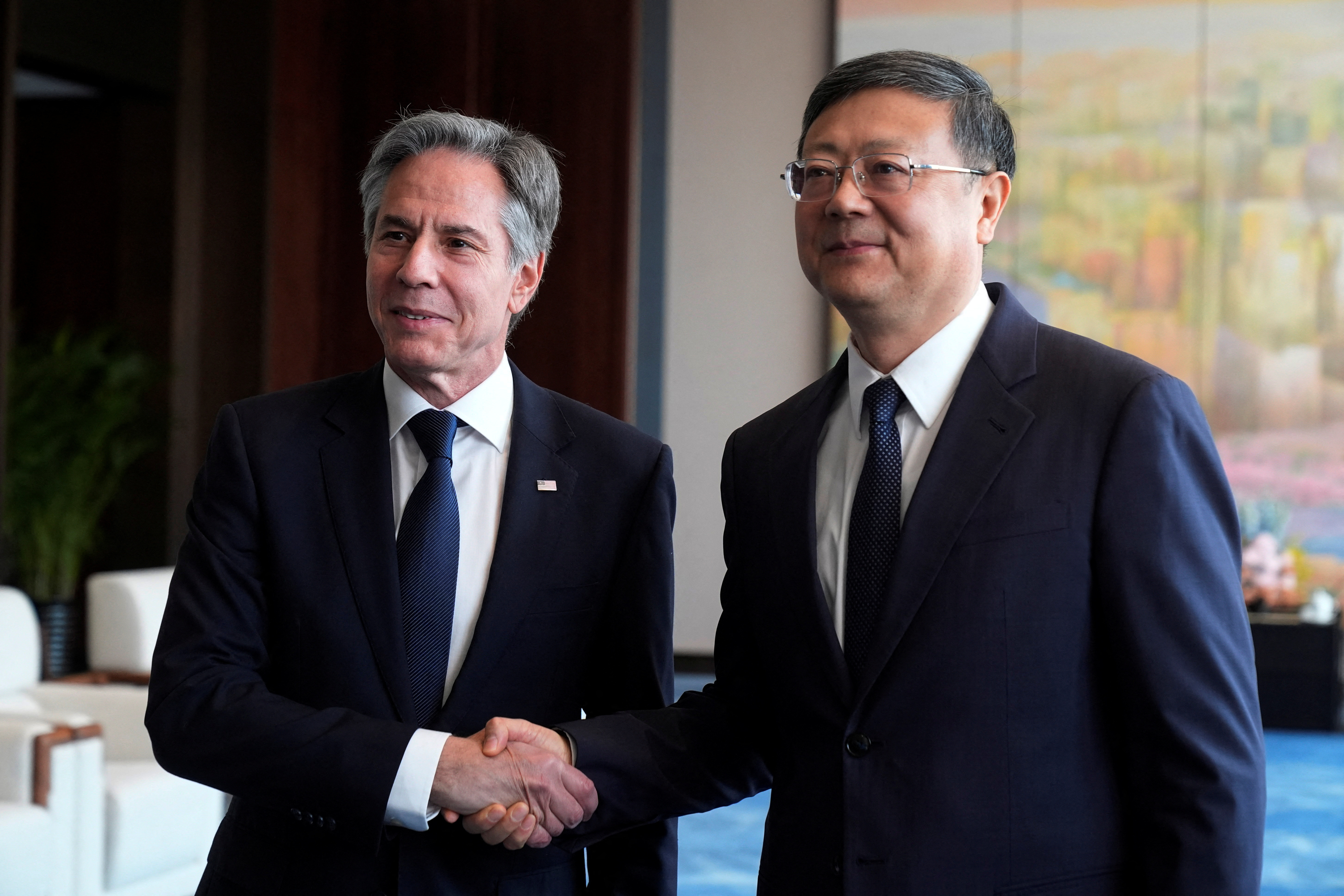
SUPPORT FOR RUSSIA
Sign up here.
Reporting by Simon Lewis and Beijing newsroom; Writing by Antoni Slodkowski; Editing by Christopher Cushing and Miral Fahmy
Our Standards: The Thomson Reuters Trust Principles. New Tab , opens new tab

World Chevron

Aerosmith frontman Steven Tyler wins dismissal for good of sexual assault lawsuit
A federal judge in Manhattan dismissed for good a lawsuit accusing Aerosmith lead singer Steven Tyler of sexually assaulting a former teenage model twice in one day in the mid-1970s.

- Share full article
Advertisement
Supported by
When U.S. Diplomats Visit China, Meal Choices Are About More Than Taste Buds
Visits to China by American officials like Secretary of State Antony J. Blinken can bring fame to local restaurants, as well as scrutiny to the dignitaries.

By Yan Zhuang
Beijing beer made with American hops, to highlight the trade relationship between the two countries. Tibetan food, to send a human rights message. Mushrooms with possible hallucinogenic properties, just because they taste good.
Where, what and how American dignitaries eat when they visit China is a serious matter. Choices of restaurants and dishes are rife with opportunities for geopolitical symbolism, as well as controversy and mockery. Chopstick skills — or a lack thereof — can be a sign of cultural competence or illiteracy.
An exorbitantly expensive meal can make an official look out of touch. Too cheap or informal, and you risk appearing undignified. Authenticity, history, cooking technique and taste can all affect the perception of a meal choice.
When Secretary of State Antony J. Blinken started a trip through China on Wednesday, part of the Biden administration’s efforts to stabilize the relationship between the two countries, some on Chinese social media wondered whether he would have time on his visit to Shanghai to stop and try some of the city’s famous xiaolongbao (soup dumplings).
One recommendation that he do so came with something of a political warning: “Eating xiaolongbao is just like handling international relations,” a commentator wrote on Weibo . “If your attention slips even a little, you’ll burn your mouth.”
Mr. Blinken did in fact visit a renowned soup dumpling restaurant that night. It’s unclear how much he considered the symbolism of his dumplings, but by indulging in a traditional popular snack, and by attending a basketball game, the optics suggested there was a more cordial spirit than on the trip he made last year, soon after a Chinese spy balloon drifting across the United States had heightened tensions.
While in Beijing, Mr. Blinken visited a notable establishment, in addition to the city’s restaurants: Li-Pi Records. Mr. Blinken — a musician who has touted “musical diplomacy” — bought two records: an album by the Chinese rocker Dou Wei, and Taylor Swift’s “Midnights,” which he described as a successful American export.
Mr. Blinken’s eating habits have drawn far less interest than that of Treasury Secretary Janet Yellen. Over two trips, this month and last year, her meals in China attracted so much attention that the state-run Global Times deemed it a form of “food diplomacy.”
Last year, Ms. Yellen made headlines when, at a restaurant in Beijing serving cuisine from Yunnan Province, she ate mushrooms that were revealed to be mildly toxic and could cause hallucinations if not cooked properly.
Ms. Yellen later said that she was not aware of the mushrooms’ potential hallucinogenic properties when she ate them and felt no abnormal effects. Still, the story sparked a brief craze for the mushrooms in China.
This month, during a four-day trip to China, Ms. Yellen visited a famed Cantonese restaurant in Guangzhou, and a Sichuan restaurant in Beijing. The dishes she ordered were quickly posted online, drawing broad approval from commenters for the variety and affordability of the dishes ordered, her chopstick skills and the fact that she and her team sat among other diners instead of in a private room.
The dishes Ms. Yellen and her team ordered were classic meals from their respective regions and were not modified to foreign tastes, according to Fuchsia Dunlop, a London-based cook and food writer who specializes in Chinese cuisine.
“They haven’t chosen really expensive, show-off dishes and ingredients,” Ms. Dunlop said, speaking about the Sichuan meal. “This is very much what everyday people in Sichuan like to eat. This menu was chosen for flavor, not prestige.”
According to a Treasury Department spokeswoman, the department generally solicits suggestions from staff at the local embassy for restaurant recommendations when Ms. Yellen travels. Then, Ms. Yellen will research the restaurants herself and make the final decision.
On occasion, specific establishments will be chosen to convey a diplomatic message, the spokeswoman added. She cited Ms. Yellen’s visit this month to a brewery in Beijing that uses American hops, aimed to highlight the significance of American agricultural exports to China.
Some restaurants where Ms. Yellen has dined have capitalized on her fame, like the Yunnan restaurant where she ate the mushrooms, which released a set menu based on what she ordered, called the “ God of Money ” menu, a nod to her position as Treasury secretary.
Ms. Yellen isn’t the first American dignitary to turn Chinese restaurants into overnight sensations. In 2011, a visit by then-Vice President Joe Biden to a Beijing noodle restaurant sent its business skyrocketing, according to Chinese state media, and led the restaurant to create a “Biden set” noodle menu.
In 2014, after Michelle Obama visited a hot pot restaurant in the city of Chengdu, the restaurant said it would create an “American First Lady” set menu. Articles in Chinese media noted approvingly that Mrs. Obama was able to handle the spicy soup, which was not toned down for a foreign palate.
Her visit to a Tibetan restaurant in the same city, however, attracted controversy, and her staff at the time readily acknowledged that the venue had been chosen deliberately to show support for the rights and religious liberties of Tibetans in China.
But for Mrs. Obama’s husband and other U.S. presidents, Chinese cuisine served at official state banquets is often Americanized or customized to better suit a foreign palette.
In 2009, President Barack Obama was served a Chinese-style beef steak and baked fish, according to Chinese state media, and in 2017, President Donald J. Trump ate dishes including kung pao chicken and stewed boneless beef in tomato sauce. Both meals finished with fruit ice cream, which is highly atypical of traditional Chinese meals.
But even those meals may hint at an international trend, Ms. Dunlop said. Mr. Obama’s menu contained “very safe, conservative choices that would be appealing to foreigners,” she said, while Mr. Trump’s menu was slightly more contemporary and showed off more Chinese cooking techniques.
That shift, Ms. Dunlop said, “may reflect China feeling a bit more confident with Westerners’ familiarity with real Chinese food” in 2017 versus 2009.
Ana Swanson contributed reporting.
Yan Zhuang is a Times reporter in Seoul who covers breaking news. More about Yan Zhuang
American Council of Learned Societies Announces 2024 Luce/ACLS Program in China Studies Fellows and Grantees
News provided by
Apr 26, 2024, 05:15 ET
Share this article
Fellowships and Grants Totaling $475,000 Support Research, Writing, and Travel for Early-Career Scholars and Graduate Students in the Field of China Studies
NEW YORK , April 26, 2024 /PRNewswire/ -- The American Council of Learned Societies (ACLS) is pleased to announce the 2024 Luce/ACLS Early Career Fellows and Travel Grantees in China Studies.
The awards are part of the redesigned Luce/ACLS Program in China Studies , which the Henry Luce Foundation has awarded ACLS $1.25 million to continue through 2025. This generous grant will support the next round of Early Career Fellowships, Travel Grants, and a Collaborative Grant, as well as a mapping project to identify archives and collections related to China studies around the world. Additional long-term fellowships are made possible in part by the National Endowment for the Humanities: Democracy demands wisdom.
In 2024, the program will support 25 fellows and grantees representing a diverse range of institutions and disciplines, including anthropology, film and media studies, gender and sexuality studies, history, literature, and sociology.
- Fourteen Luce/ACLS Early Career Fellowships in China Studies support emerging scholars whose research focuses on China's societies, histories, cultures, geopolitics, art, and global impact. This year's awards include eight long-term fellowships of up to $45,000 , which allow recent PhDs to take leave from university responsibilities for research and writing toward a scholarly text, and six flexible fellowships of $15,000 , which enable scholars with heavy teaching and service responsibilities to advance their projects.
"ACLS and the Henry Luce Foundation have partnered to advance the understanding of China for 40 years," said Deena Ragavan , ACLS Director of International Programs. "We are excited to continue our re-envisioned Program in China Studies, which prioritizes supporting a wide diversity of scholars, institutions, and research topics and improving public understanding of Chinese cultures, histories, and societies. ACLS is proud to support these outstanding 2024 Early Career Fellows and Travel Grantees, whose research will help provide a critical, nuanced understanding of China's past and present."
Applications are currently open for the 2024 Luce/ACLS Collaborative Grant in China Studies , which will award up to $150,000 for innovative pilot activities that initiate long-term transformative change in the field of China studies. Final proposals are due June 13, 2024 , and the winner will be announced later this year.
Formed a century ago, the American Council of Learned Societies (ACLS) is a nonprofit federation of 80 scholarly organizations. As the leading representative of American scholarship in the humanities and interpretive social sciences, ACLS upholds the core principle that knowledge is a public good. In supporting its member organizations, ACLS utilizes its million endowment and $37 million annual operating budget to expand the forms, content, and flow of scholarly knowledge, reflecting our commitment to diversity of identity and experience. ACLS collaborates with institutions, associations, and individuals to strengthen the evolving infrastructure for scholarship. In all aspects of our work, ACLS is committed to principles and practices in support of racial and social justice.
The Henry Luce Foundation seeks to deepen knowledge and understanding in pursuit of a more democratic and just world. It does so by nurturing knowledge communities and institutions, fostering dialogue across divides, enriching public discourse, amplifying diverse voices, and investing in leadership development.
The National Endowment for the Humanities (NEH) is an independent federal agency created in 1965. It is one of the largest funders of humanities programs in the United States . Because democracy demands wisdom, NEH serves and strengthens our republic by promoting excellence in the humanities and conveying the lessons of history to all Americans. The Endowment accomplishes this mission by awarding grants for top-rated proposals examined by panels of independent, external reviewers. Any views, findings, conclusions, or recommendations expressed in this announcement, do not necessarily represent those of the National Endowment of for the Humanities.
Twitter LinkedIn
SOURCE American Council of Learned Societies
Modal title
We've detected unusual activity from your computer network
To continue, please click the box below to let us know you're not a robot.
Why did this happen?
Please make sure your browser supports JavaScript and cookies and that you are not blocking them from loading. For more information you can review our Terms of Service and Cookie Policy .
For inquiries related to this message please contact our support team and provide the reference ID below.

IMAGES
COMMENTS
Reconsider travel due to the arbitrary enforcement of local laws, including in relation to exit bans, and the risk of wrongful detentions.. Summary: The People's Republic of China (PRC) government arbitrarily enforces local laws, including issuing exit bans on U.S. citizens and citizens of other countries, without fair and transparent process under the law.
Reissued with updates to COVID-19 information. Reconsider travel to the People's Republic of China (PRC), including the Hong Kong Special Administrative Region (SAR) and the Macau SAR, due to the surge in COVID-19 cases, arbitrary enforcement of local laws, and COVID-19-related restrictions. See specific risks and conditions in each jurisdiction below.
CNN —. For years, Americans interested in visiting China had to endure a thorough visa process, which required pre-booking hotels and flights and handing their passports over to an embassy or ...
Americans should reconsider travel to China due to the risk of wrongful detention, the US State Department warned in an updated travel advisory issued Friday.
Some of several COVID-19 testing sites in Beijing are: Sanfine International Hospital: 010 6413 6688. Beijing Hospital: 010 85132266. Peking University International Hospital: 010 69006900. Beijing Shijitan Hospital: 010 63926600. Beijing United Family Hospital Jianguomen Clinic: 4008-919191 (24-Hour)
Along with several detained Americans, Two Chinese-Australians, Cheng Lei, who formerly worked for China's state broadcaster, and writer Yang Jun, have been held since 2020 and 2019 respectively ...
July 19, 2023 2:41 pm (EST) After China removed most of its COVID-related cross-border travel restrictions, foreign tourists are slowly returning. Ctrip, one of China's largest online travel ...
In an advisory updated March 10, the US State Department urges American citizens to reconsider any travel to China, including Hong Kong and Macao, due to "arbitrary enforcement of local laws ...
Other countries, such as Canada and Australia, have a lower level of advice, which is to "exercise a high degree of caution". It's such a shame that the USA and China aren't getting along at the moment. 5. Get a VPN before you leave. You need a VPN if you want to use hotel Wi-Fi. Image by Privecstasy on Unsplash.
The State Department has periodically issued tiered warnings for Americans traveling to China, calling on them to reconsider visits or exercise increased caution due to risks of "arbitrary ...
China Travel Restrictions & Travel Advisory (Updated April 25, 2024) Updates April 25th, 2024: If you book a trip with us, we can arrange a port visa for you to travel to China. China's port visas are similar to the "visas on arrival" of some other countries. It enables a stay in China for up to 30 days. Contact us to book a trip.
Warning Remains. Last July, as China's travel sector began to recover, the U.S. State Department issued a Level 3 travel advisory to Americans, warning travelers to reconsider visiting the ...
Updated 11:53 AM PDT, December 30, 2023. China will ease visa restrictions for people visiting from the United States, the country's latest effort to attract foreign travelers since reopening its borders earlier this year. Starting Jan. 1, American tourists will no longer need to submit round-trip air tickets, proof of hotel reservations ...
Travelers interested in visiting China may apply for entry visas and start planning trips now. Tourism experts started getting trips on the schedule even before the return of China's tourist ...
According to the U.S. Department of State, traveling to China is under a level 3 travel advisory, warning Americans to reconsider travel.
Jan. 9, 2023, 3:17 PM PST. By Kimmy Yam. Following the Biden administration's implementation of a new Covid-19-related travel requirement for passengers flying in from China, Asian American ...
China alone contributed 51% of the travel and tourism GDP in the Asia-Pacific region in 2018, according to the World Travel and Tourism Council. And Chinese travelers typically accounted for 30% ...
China generally responds angrily to what it considers U.S. efforts to impugn its authoritarian Communist Party-led system. It has issued its own travel advisories concerning the U.S., warning of the dangers of crime, anti-Asian discrimination and the high cost of emergency medical assistance.
China will make it easier for American tourists to visit, simplifying the visa process for 2024. Going forward, the country will no longer require travelers from the United States to submit proof ...
A February survey of 43 American companies showed that 50 percent of chief executives planned to visit China in the first half of this year, according to the U.S.-China Business Council, a trade ...
China Travel Advisory: Other: April 12, 2024: Colombia Travel Advisory : Level 3: Reconsider Travel: January 2, 2024: Costa Rica Travel Advisory : Level 2: Exercise Increased Caution: ... You are about to leave travel.state.gov for an external website that is not maintained by the U.S. Department of State.
Restrictions on U.S.-China travel have put would-be American study-abroad students in a tight spot - and risk robbing the U.S. of its next generation of China experts.
The U.S. is considering easing advisories against its citizens traveling to China, Deputy Secretary of State Kurt Campbell said on Tuesday, acknowledging concerns that the warnings may have ...
SHANGHAI, April 25 (Reuters) - U.S. Secretary of State Antony Blinken on Thursday called on China to provide a level playing field for American businesses as he began a visit aimed at resolving a ...
Beijing beer made with American hops, to highlight the trade relationship between the two countries. Tibetan food, to send a human rights message. Mushrooms with possible hallucinogenic properties ...
Currently, travel to China is listed by the State Department as a Level 3 risk, due in part to China's "arbitrary enforcement of local laws.". The US government should consider raising the ...
The awards are part of the redesigned Luce/ACLS Program in China Studies, which the Henry Luce Foundation has awarded ACLS $1.25 million to continue through 2025. This generous grant will support the next round of Early Career Fellowships, Travel Grants, and a Collaborative Grant, as well as a mapping project to identify archives and collections related to China studies around the world.
China launched its harshest attack to date on US complaints about industrial overcapacity, signaling that Secretary of State Antony Blinken may be in for some difficult conversations during his ...
Secretary of State Antony Blinken will travel to China in the coming week as the Biden administration continues to try to ensure that the US-China relationship stays the course, even as the US ...